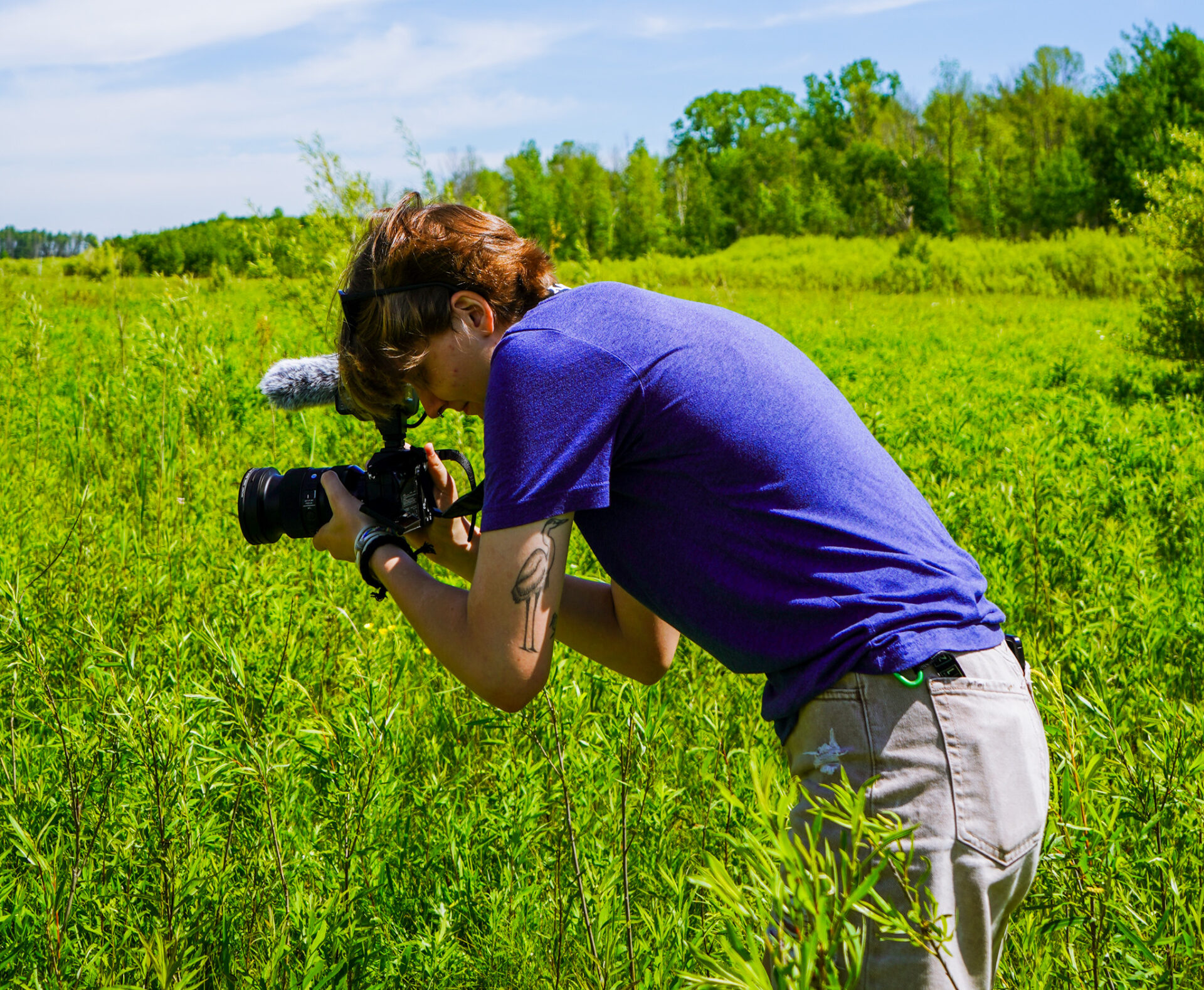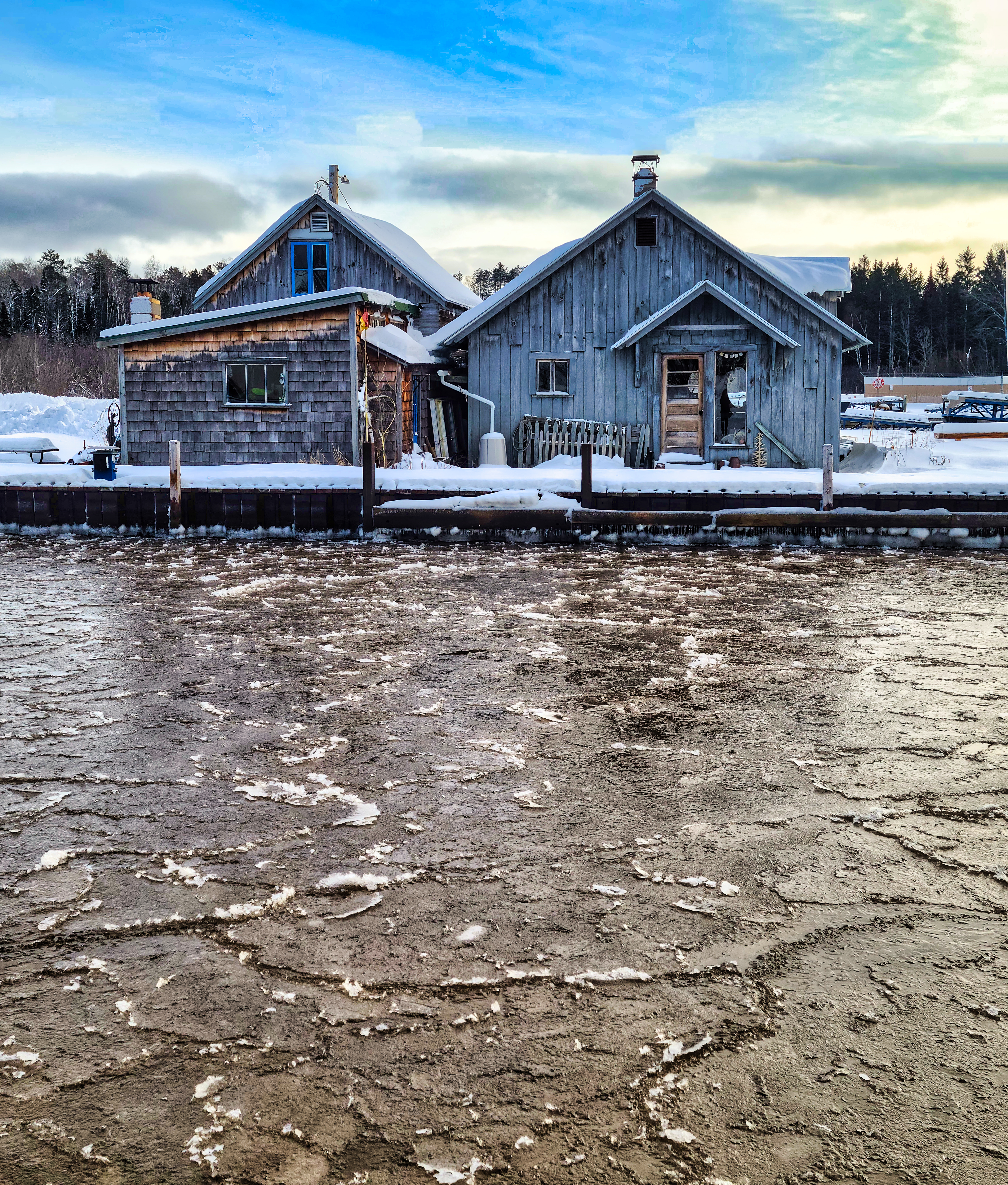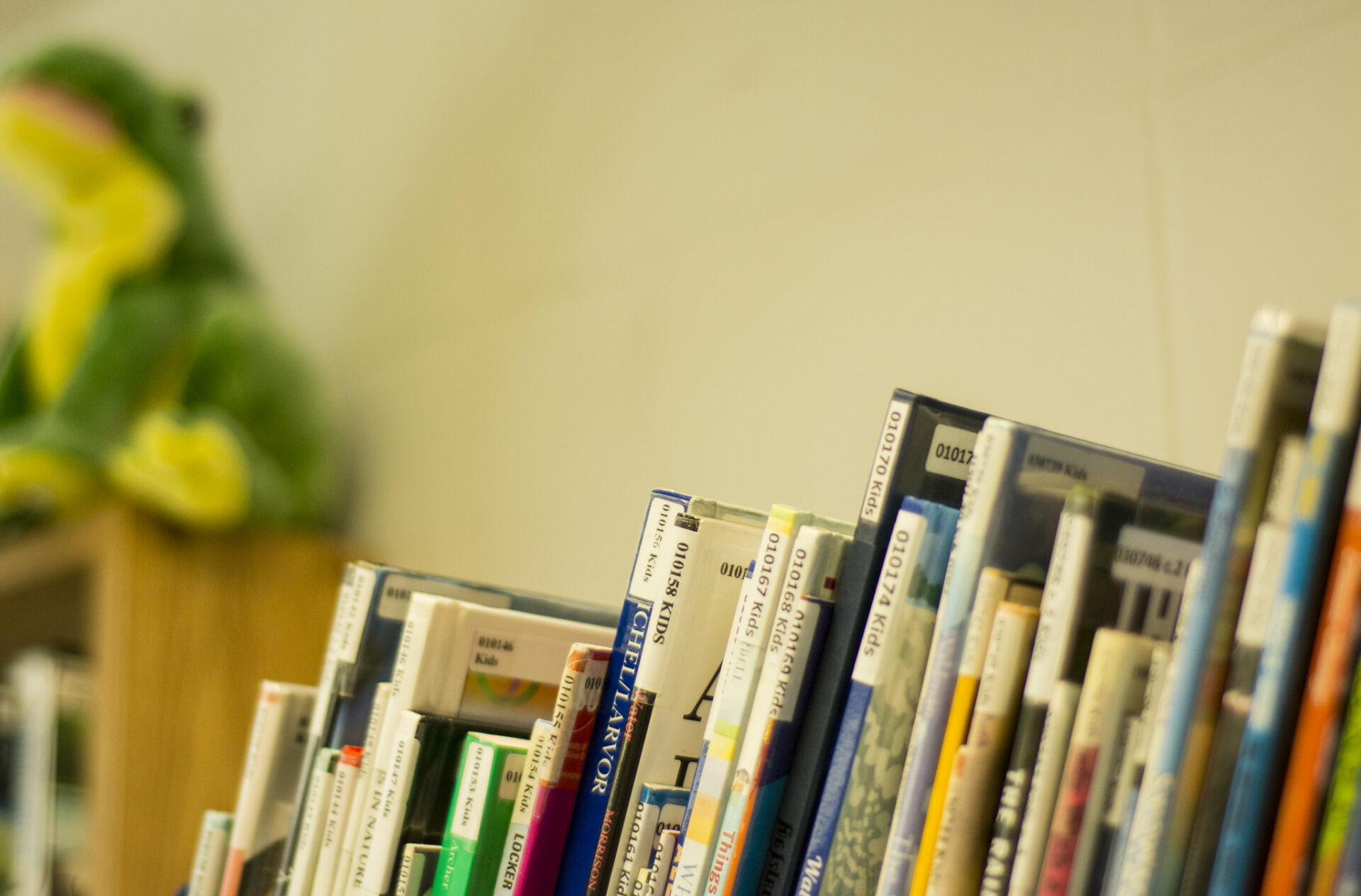News Releases
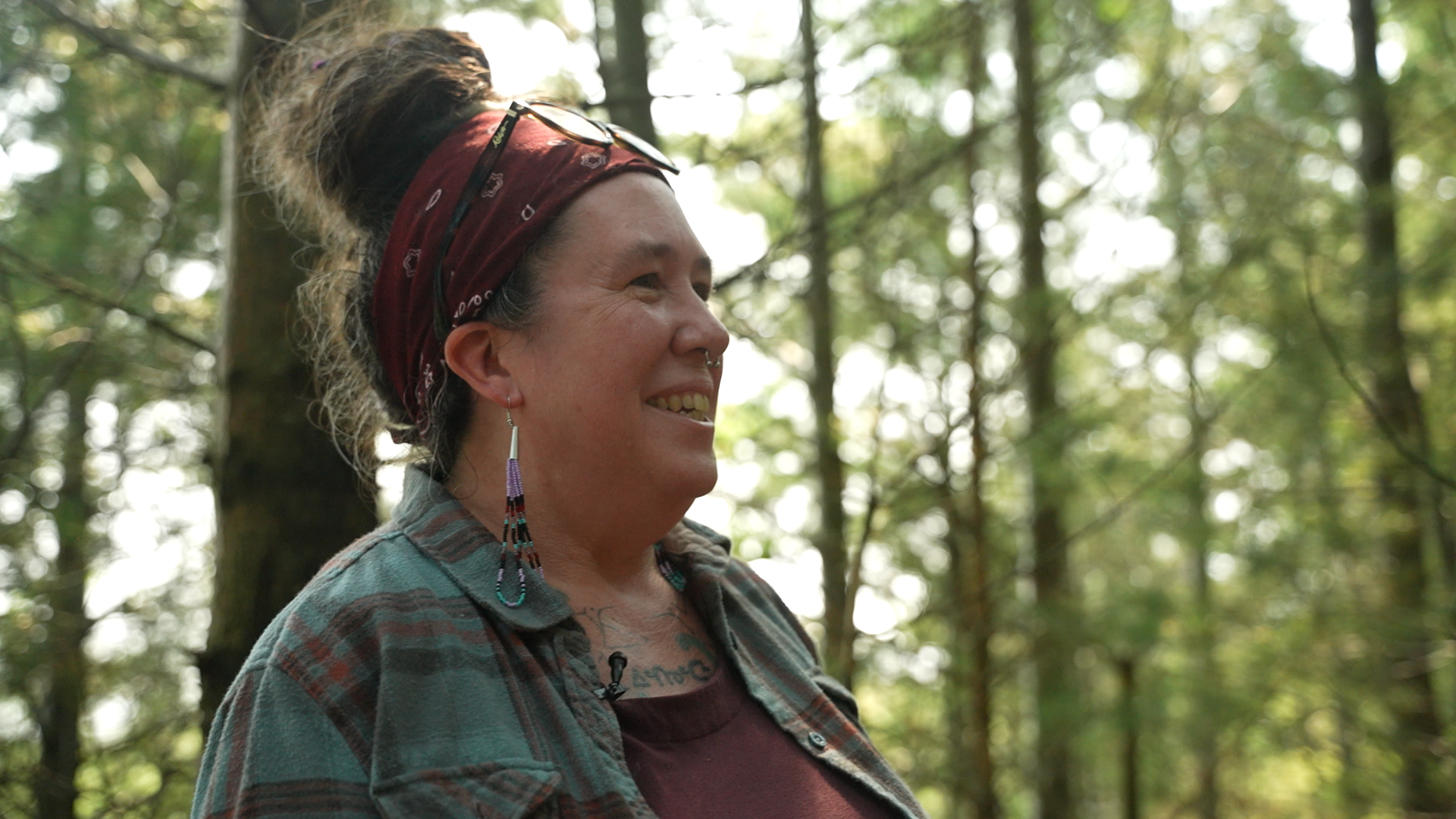 Watch: How tree rings and community conversations are bringing fire back
https://youtu.be/KUKIw1eSwEI Research into centuries-old fire-scarred trees in northern Wisconsin is helping shape current fire management practices for tribal and state partners. The project, We are…
Watch: How tree rings and community conversations are bringing fire back
https://youtu.be/KUKIw1eSwEI Research into centuries-old fire-scarred trees in northern Wisconsin is helping shape current fire management practices for tribal and state partners. The project, We are…
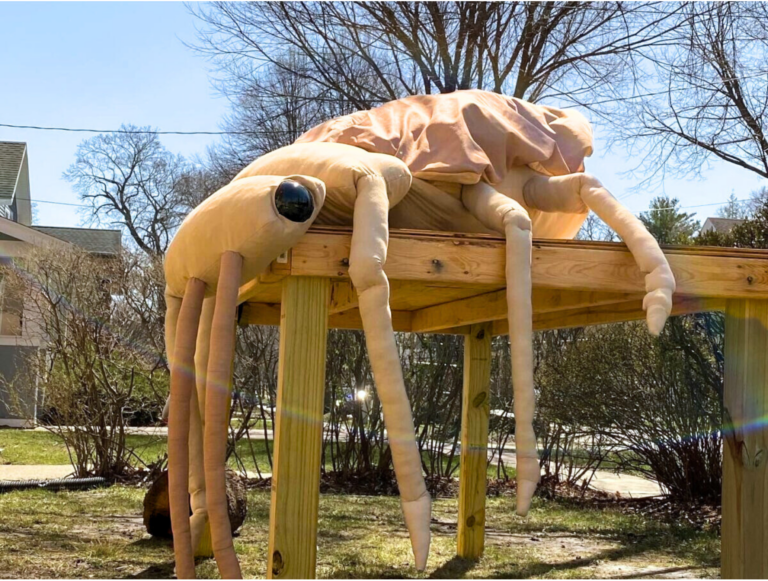 When art and science join forces
This season of Introduced features three episodes exploring art and science.
When art and science join forces
This season of Introduced features three episodes exploring art and science.
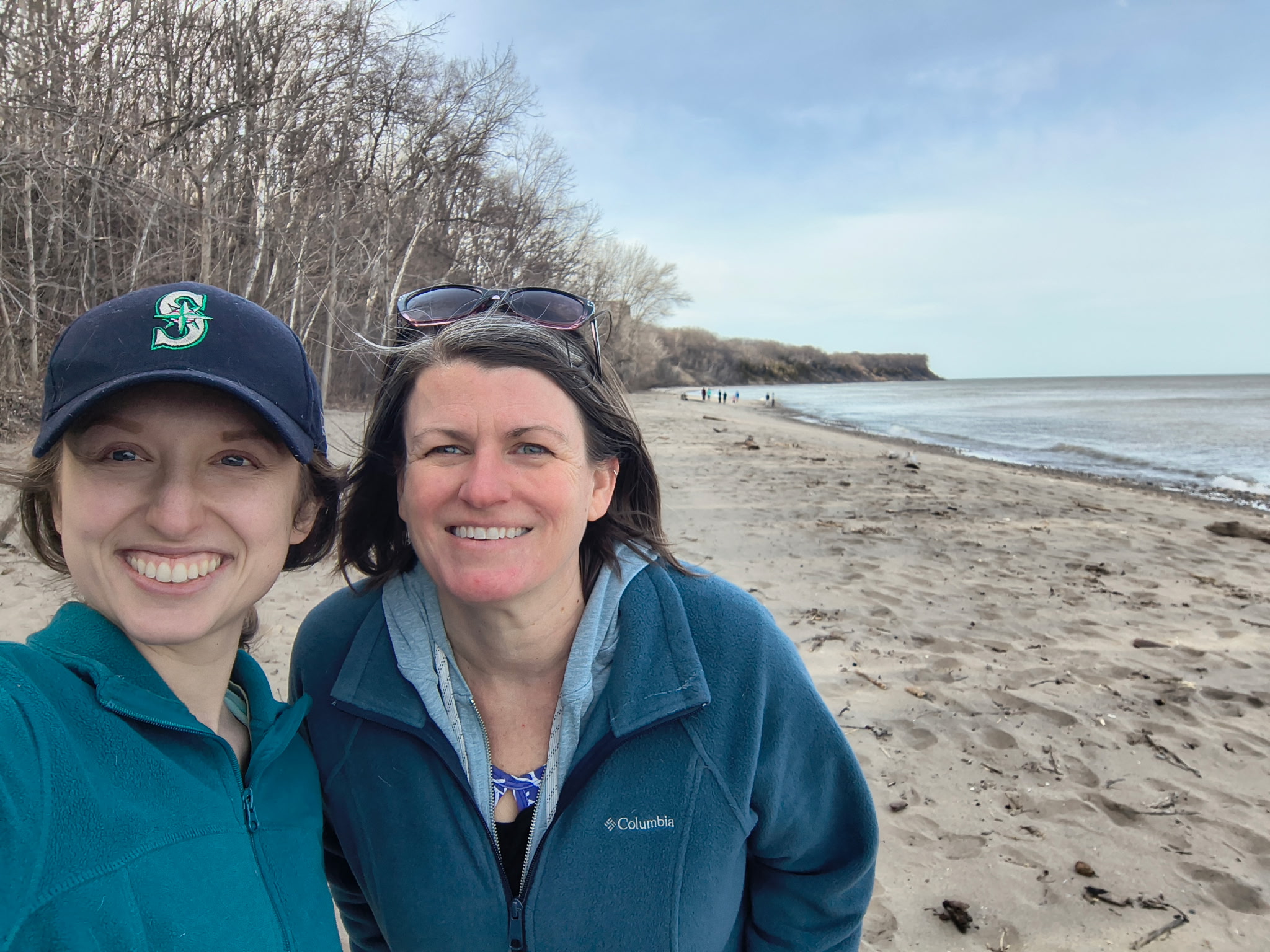 Sea Grant welcomes new coastal resilience specialist
Carrie Malone will work with Milwaukee communities to build resilience to flooding, changing water levels and other coastal hazards.
Sea Grant welcomes new coastal resilience specialist
Carrie Malone will work with Milwaukee communities to build resilience to flooding, changing water levels and other coastal hazards.
Giving back to Wisconsin’s waters
UW–Madison institutions work with tribes to investigate pollution and address misconceptions
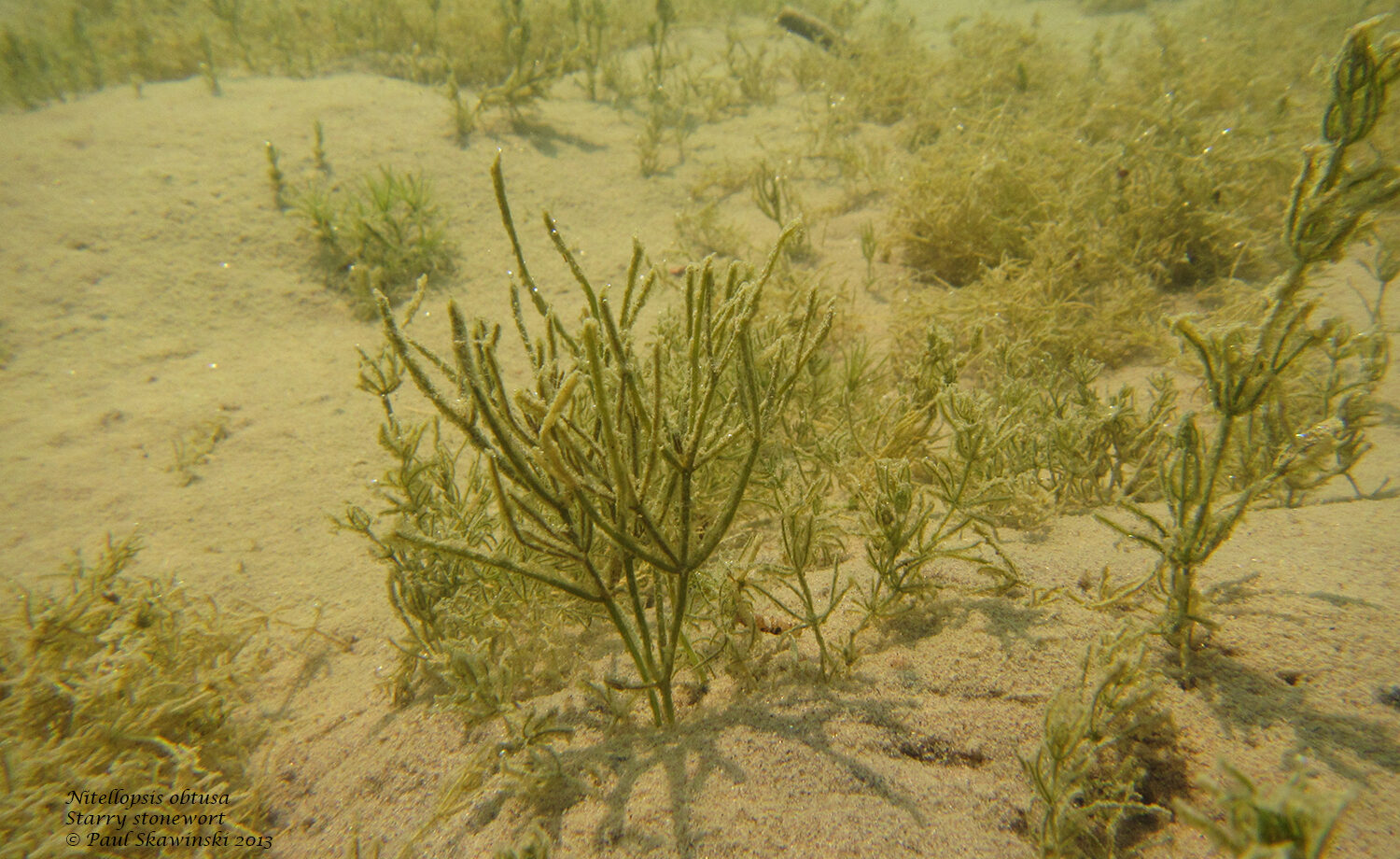 Podcast shares the unexpected lessons of starry stonewort
Experts reveal what they've learned after a decade of managing starry stonewort in Little Muskego Lake.
Podcast shares the unexpected lessons of starry stonewort
Experts reveal what they've learned after a decade of managing starry stonewort in Little Muskego Lake.
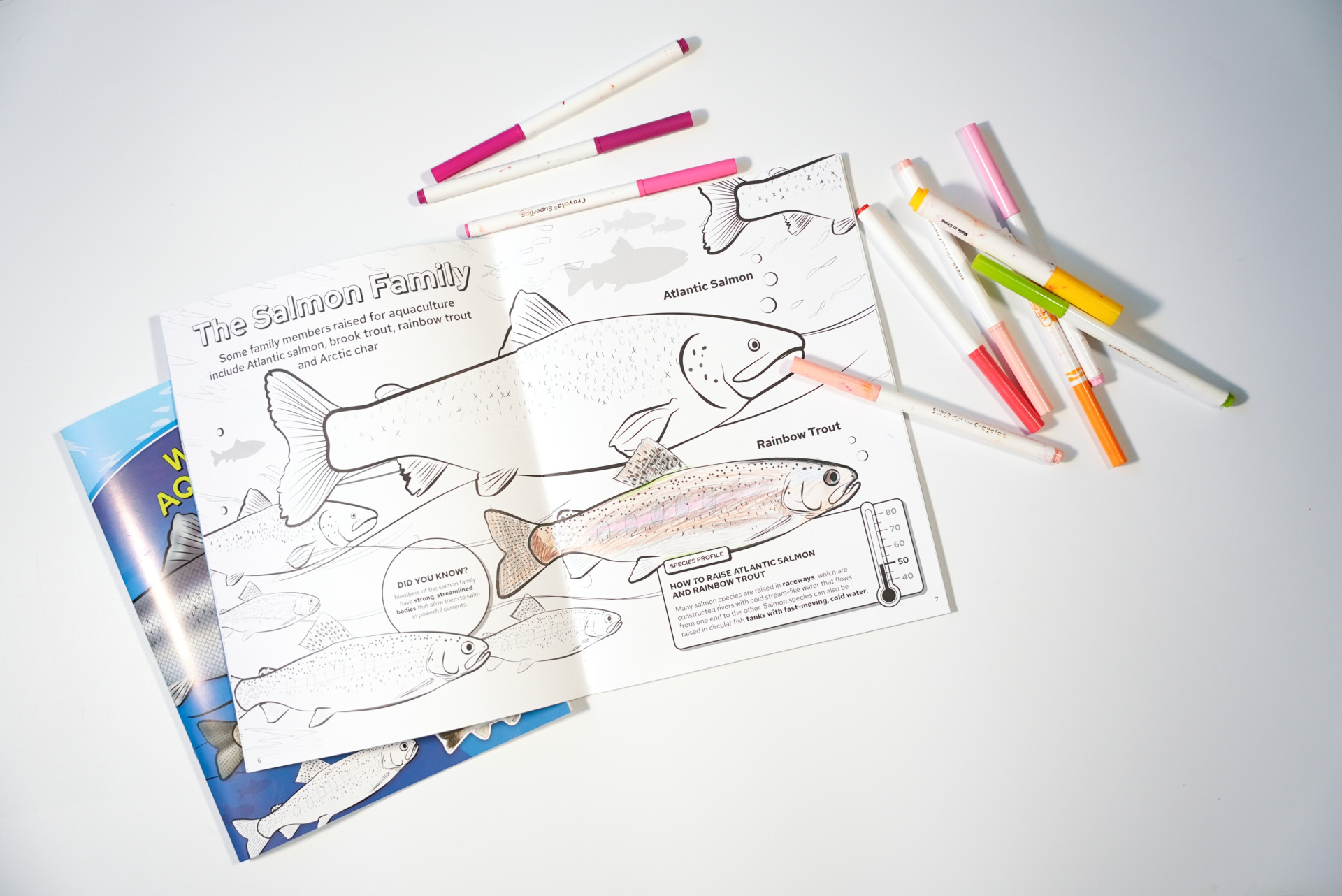 Coloring and sticker book teaches kids about fish farming
The “Wisconsin Aquaculture Coloring and Sticker Activity Book" is the first of its kind.
Coloring and sticker book teaches kids about fish farming
The “Wisconsin Aquaculture Coloring and Sticker Activity Book" is the first of its kind.
 Sea Grant research project inspires children’s book
A new children's book is a celebration of hope, healing and lessons we can learn from the land. It offers a look at the role fire historically played on Wisconsin and Minnesota points along Lake Superior.
Sea Grant research project inspires children’s book
A new children's book is a celebration of hope, healing and lessons we can learn from the land. It offers a look at the role fire historically played on Wisconsin and Minnesota points along Lake Superior.
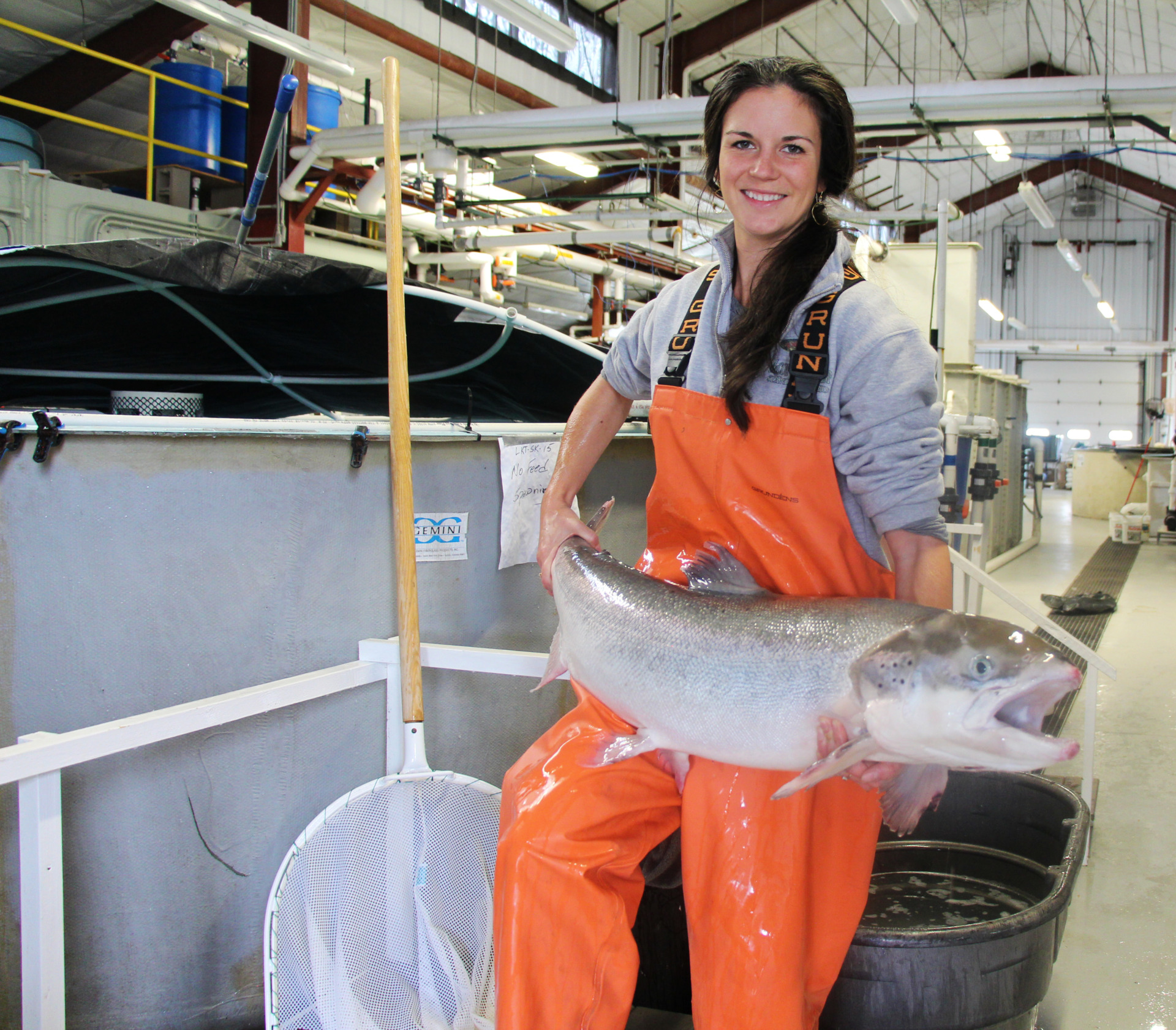 Aquaculture outreach extraordinaire wins award
The Aquaculture Information Exchange recently named Emma Hauser an extension/outreach extraordinaire.
Aquaculture outreach extraordinaire wins award
The Aquaculture Information Exchange recently named Emma Hauser an extension/outreach extraordinaire.
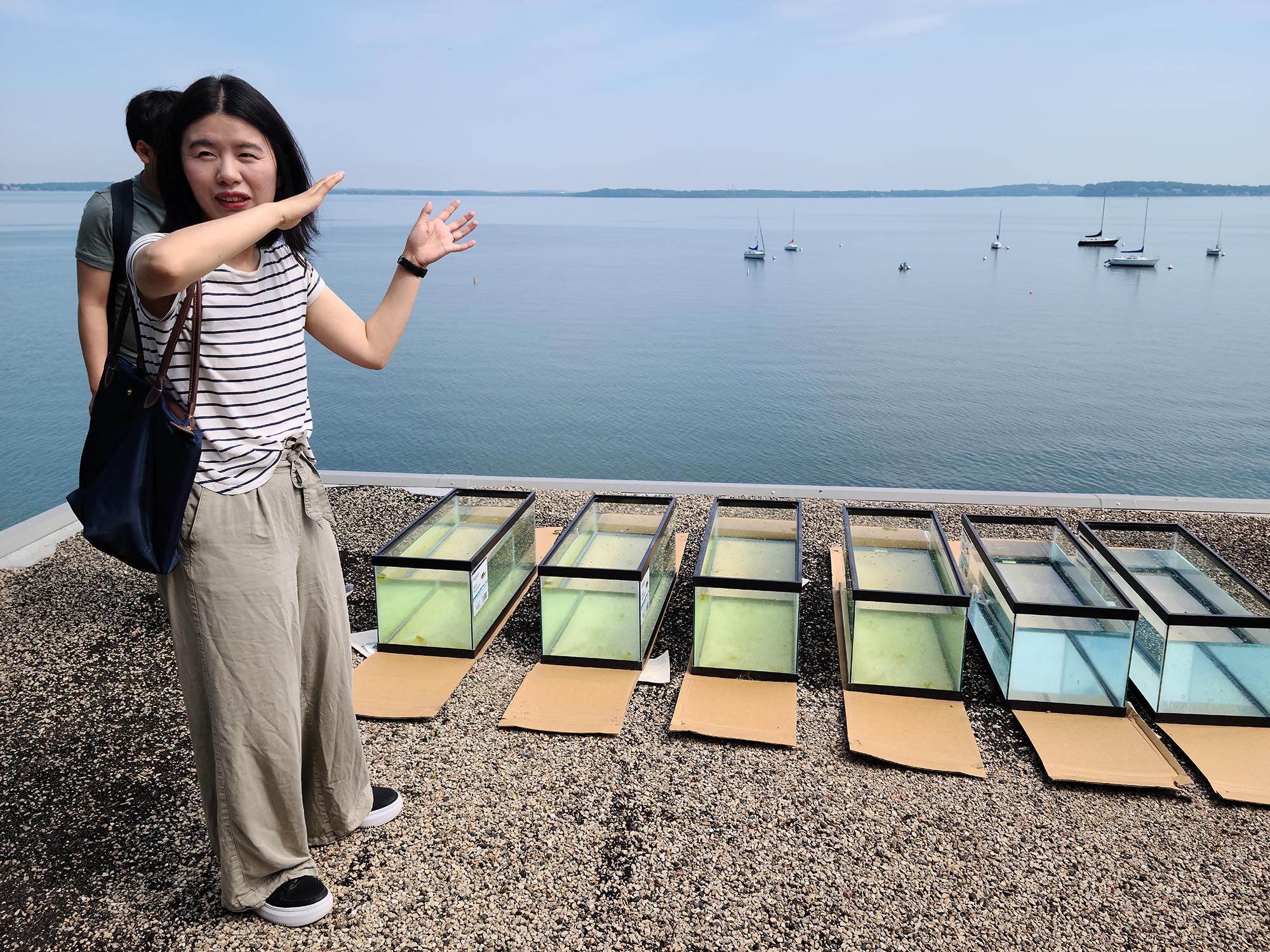 A new use for an old technology
Mohan Qin and Haoran Wei, researchers at UW-Madison, are working to revolutionize nanoplastic sampling in the Great Lakes.
A new use for an old technology
Mohan Qin and Haoran Wei, researchers at UW-Madison, are working to revolutionize nanoplastic sampling in the Great Lakes.
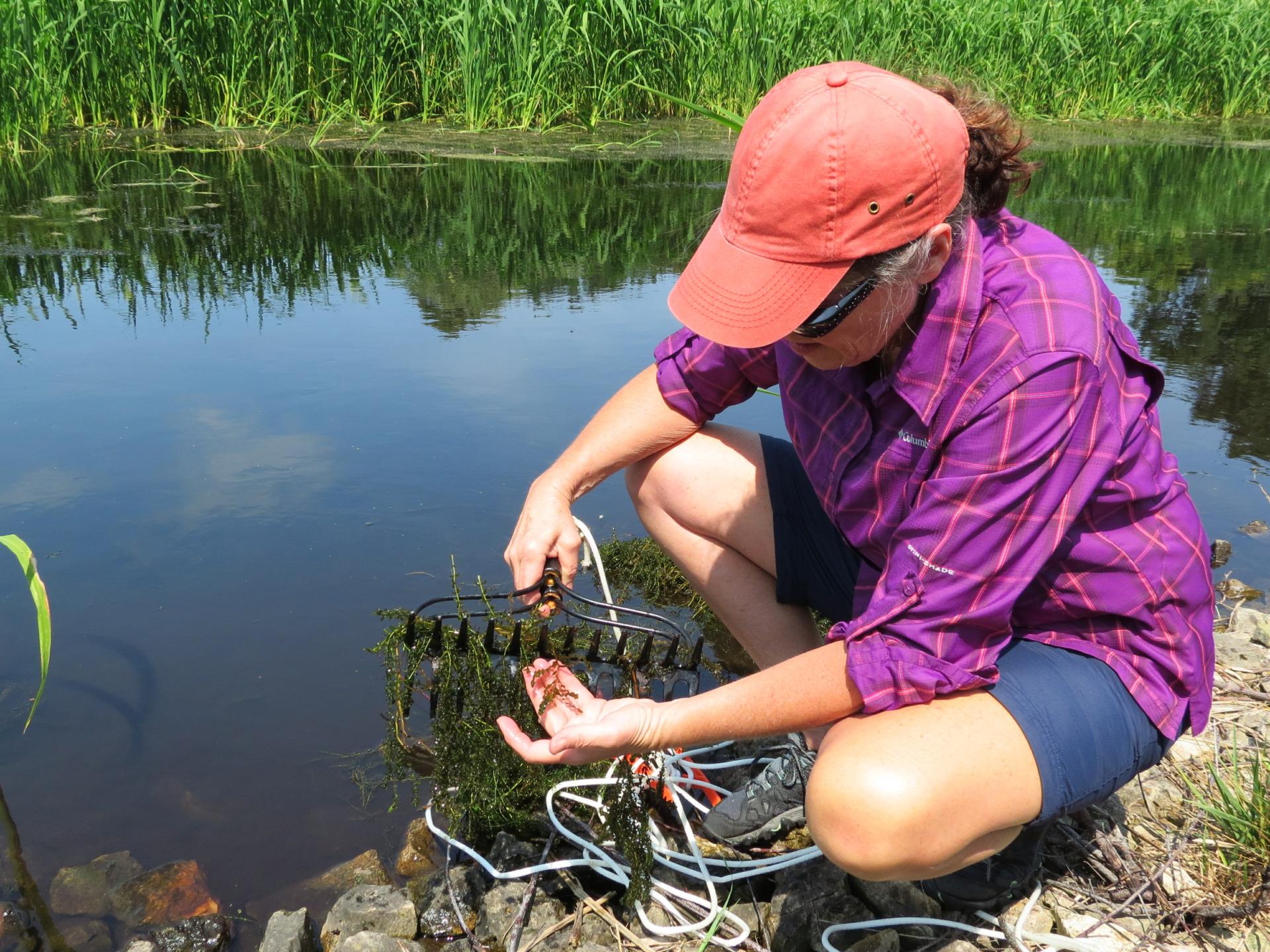 When it comes to aquatic plant management, words matter
Millions of dollars are spent every year in Wisconsin to manage unwanted aquatic plants. Despite this, little funding or effort is dedicated to education specific to aquatic plant management. A Sea Grant study aimed at filling this information gap by identifying internet search terms.
When it comes to aquatic plant management, words matter
Millions of dollars are spent every year in Wisconsin to manage unwanted aquatic plants. Despite this, little funding or effort is dedicated to education specific to aquatic plant management. A Sea Grant study aimed at filling this information gap by identifying internet search terms.
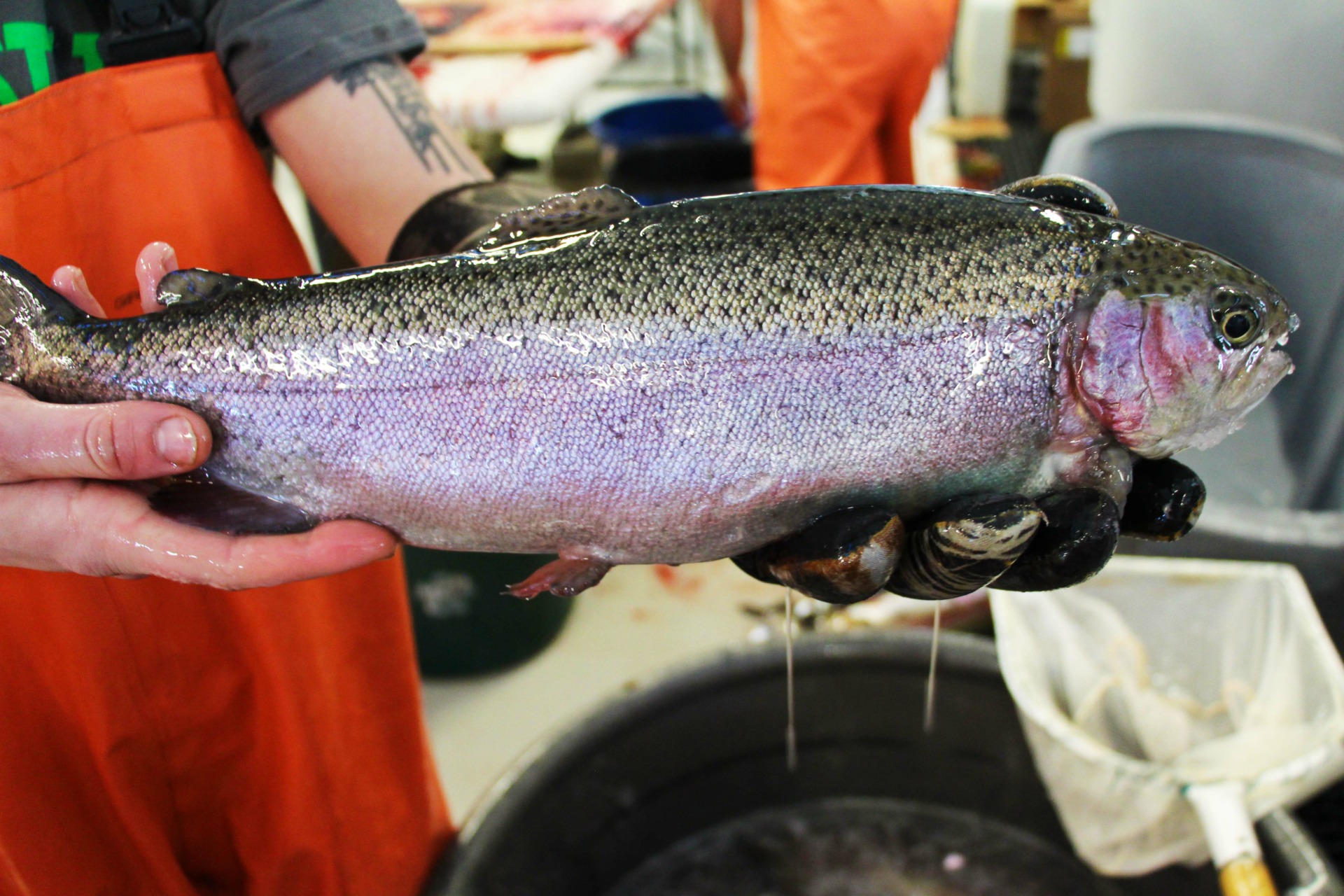 Wisconsin Aquaculture Conference returns Feb. 21-22
The conference will bring together fish farmers, researchers, educators and vendors across the state and region.
Wisconsin Aquaculture Conference returns Feb. 21-22
The conference will bring together fish farmers, researchers, educators and vendors across the state and region.
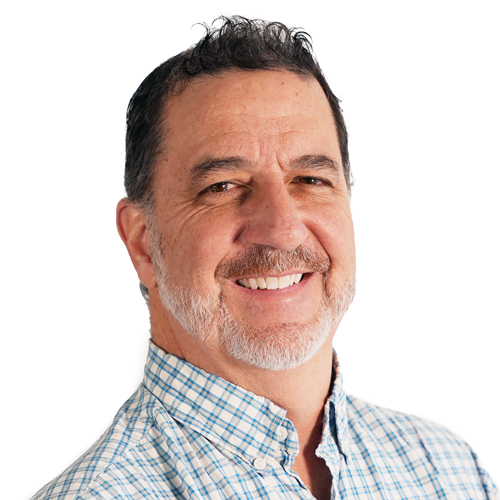 New Sea Grant communications director returns to roots in science communication
Andrew Savagian is the new assistant director for communications.
New Sea Grant communications director returns to roots in science communication
Andrew Savagian is the new assistant director for communications.
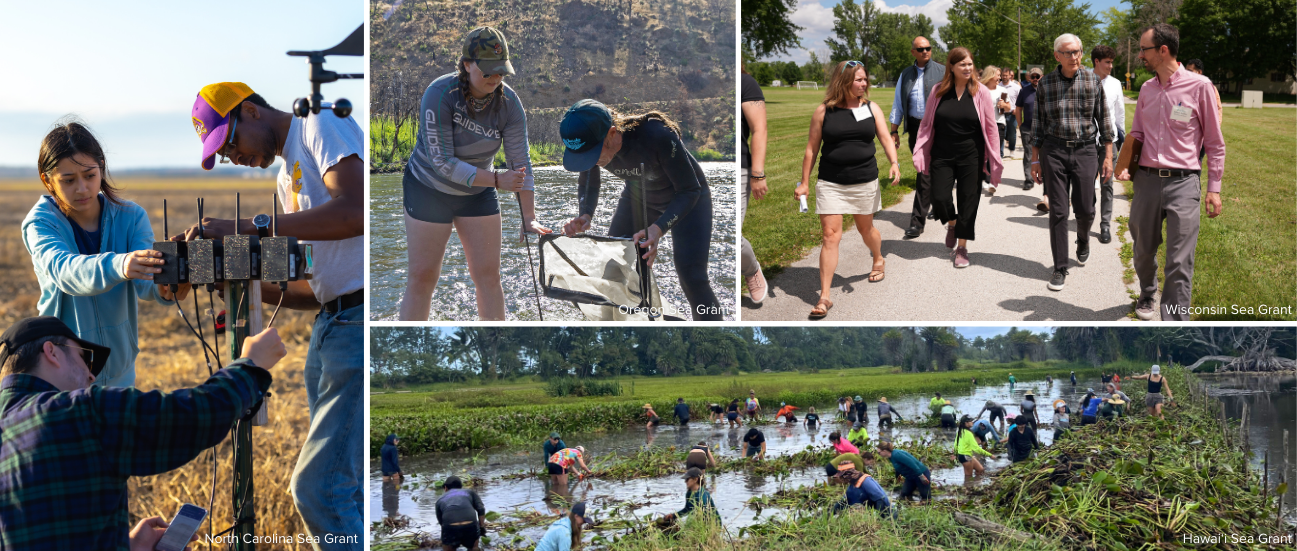 NOAA Sea Grant invests $4.25 million to further a resilient future
Wisconsin Sea Grant has new federal funding to support staff with expertise in economics, urban and regional planning, geospatial analysis, policy analysis, law, anthropology and Indigenous knowledge to address coastal adaptation and resilience issues.
NOAA Sea Grant invests $4.25 million to further a resilient future
Wisconsin Sea Grant has new federal funding to support staff with expertise in economics, urban and regional planning, geospatial analysis, policy analysis, law, anthropology and Indigenous knowledge to address coastal adaptation and resilience issues.
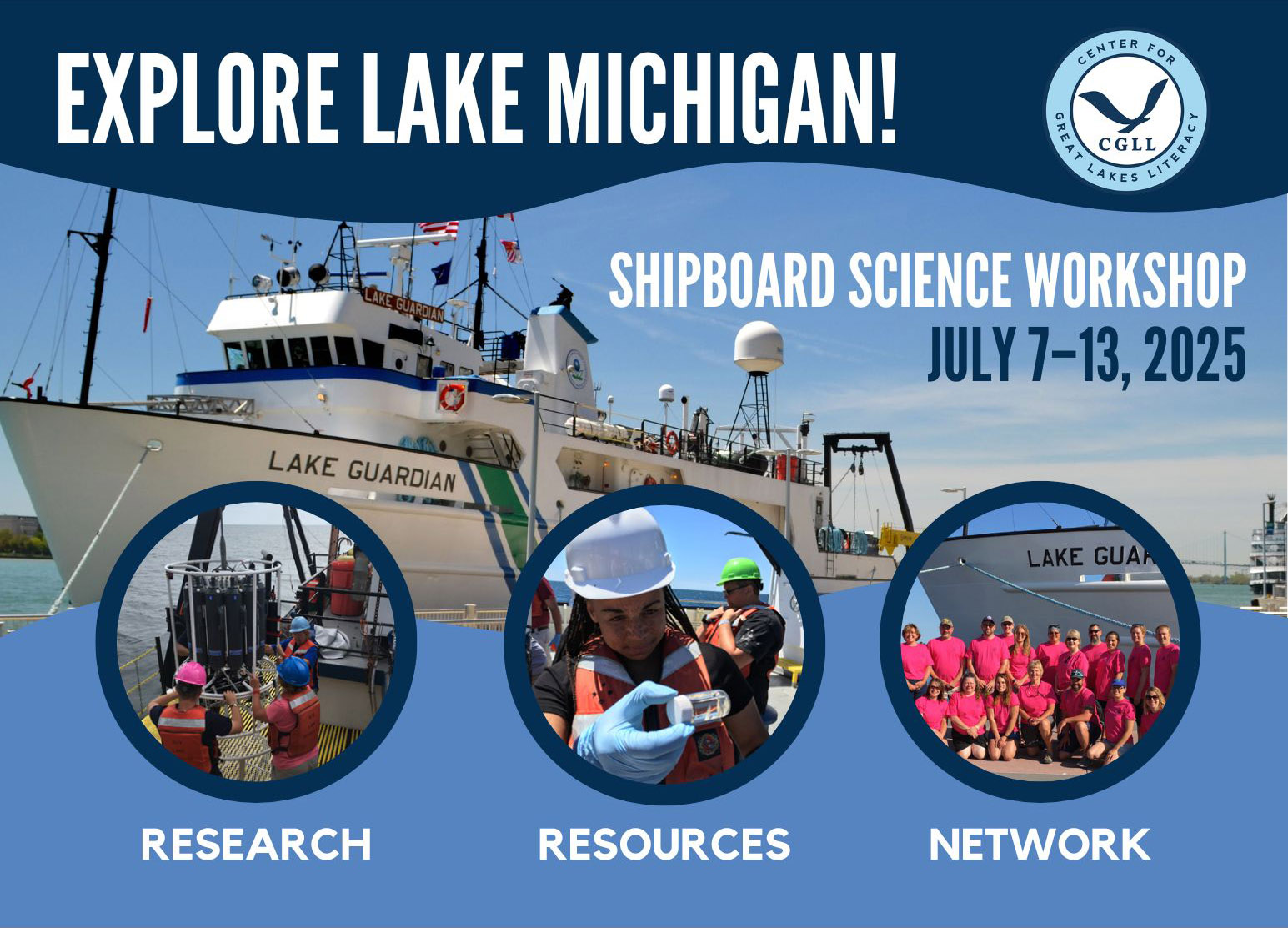 2025 Shipboard Science on Lake Michigan
Teachers are encouraged to apply for the 2025 Shipboard Science Workshop aboard the Lake Guardian ship on Lake Michigan.
2025 Shipboard Science on Lake Michigan
Teachers are encouraged to apply for the 2025 Shipboard Science Workshop aboard the Lake Guardian ship on Lake Michigan.
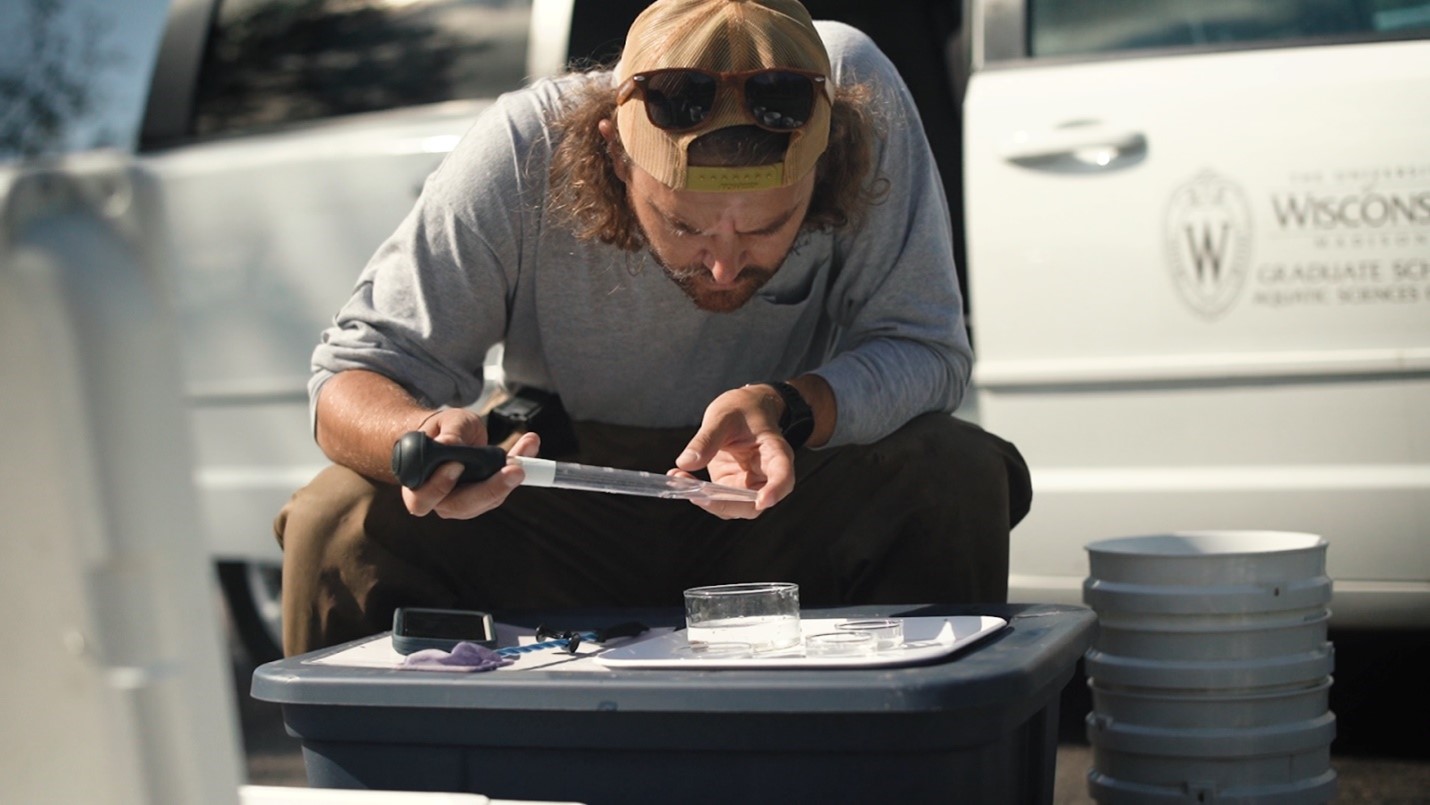 Sea Grant announces new projects to address community needs regarding contaminants of emerging concern
Gavin Dehnert was awarded a grant from National Sea Grant to study eaglets, game fish and water in Wisconsin, Minnesota and Michigan for evidence of PFAS contamination.
Sea Grant announces new projects to address community needs regarding contaminants of emerging concern
Gavin Dehnert was awarded a grant from National Sea Grant to study eaglets, game fish and water in Wisconsin, Minnesota and Michigan for evidence of PFAS contamination.
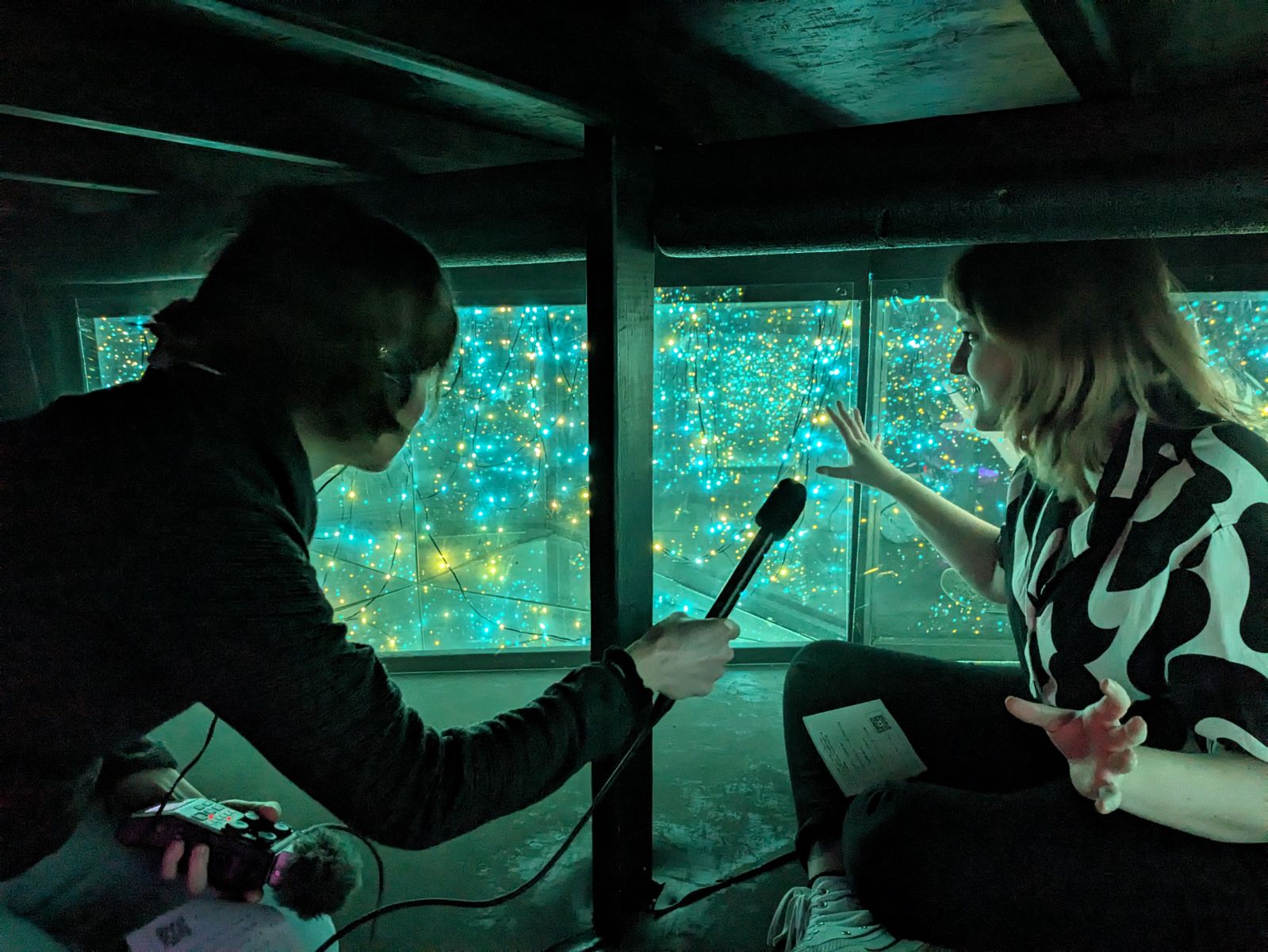 Award-winning podcast returns with new stories about aquatic invasive species
The third season of "Introduced" dives into science, art and community.
Award-winning podcast returns with new stories about aquatic invasive species
The third season of "Introduced" dives into science, art and community.
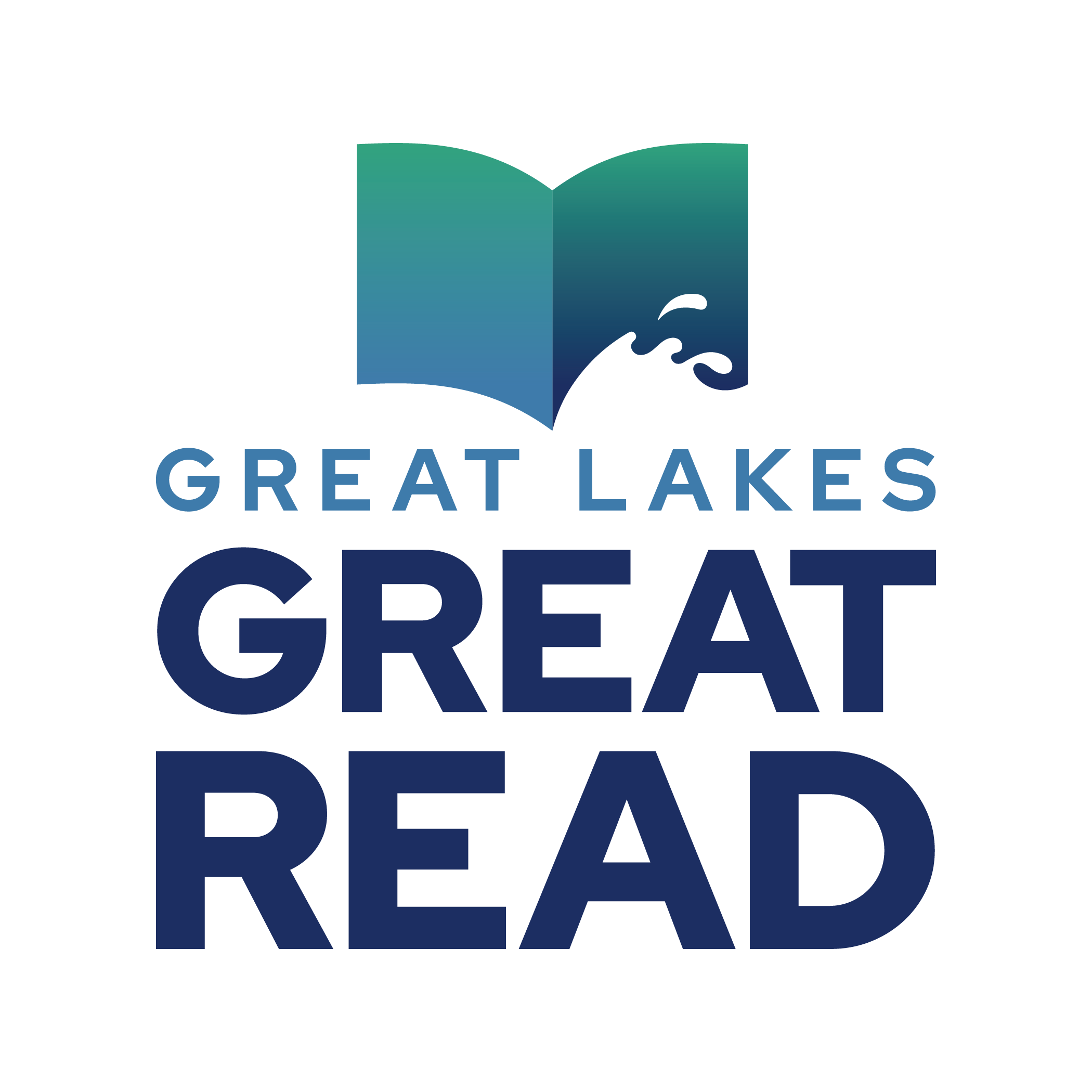 Great Lakes Science Café offered in Green Bay
Explore the intersection of science and writing about the Great Lakes during a science café at 6-9 p.m., Nov. 8, Paradise North Distillery in Green Bay.
Great Lakes Science Café offered in Green Bay
Explore the intersection of science and writing about the Great Lakes during a science café at 6-9 p.m., Nov. 8, Paradise North Distillery in Green Bay.
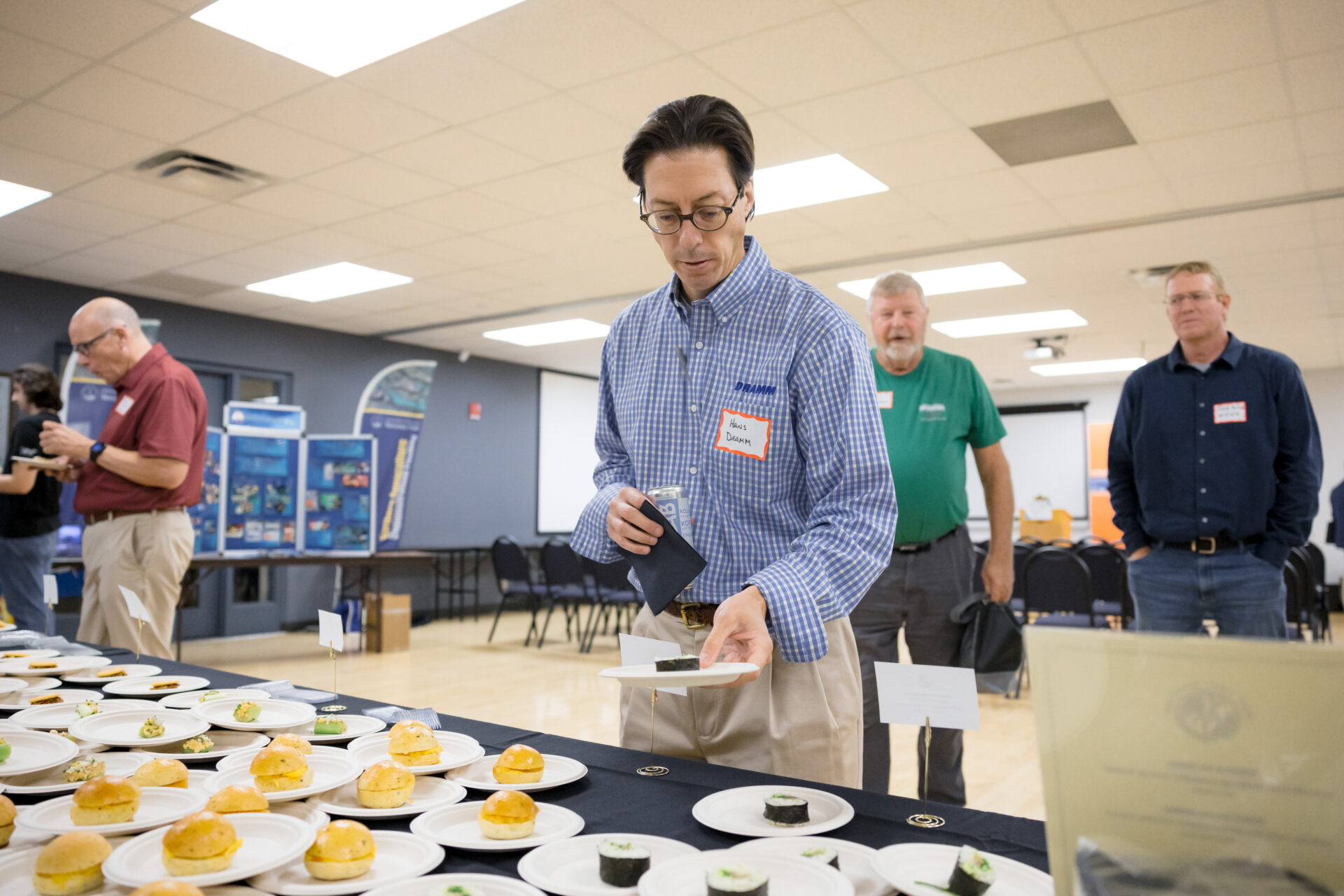 Head to Tail Fish Showcase invites producers and consumers to think beyond the fillet
The 100% Great Lakes Fish initiative is finding new ways to use the whole fish.
Head to Tail Fish Showcase invites producers and consumers to think beyond the fillet
The 100% Great Lakes Fish initiative is finding new ways to use the whole fish.
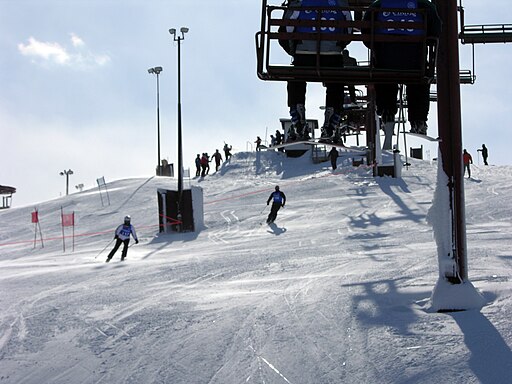 Climate change creates uphill battles at downhill ski areas in Wisconsin
A recent study found that Wisconsin ski hills face multiple challenges due to changing snow conditions from climate disruption, plus changes in skier behavior. However, the state’s ski operators are adapting to meet these challenges.
Climate change creates uphill battles at downhill ski areas in Wisconsin
A recent study found that Wisconsin ski hills face multiple challenges due to changing snow conditions from climate disruption, plus changes in skier behavior. However, the state’s ski operators are adapting to meet these challenges.
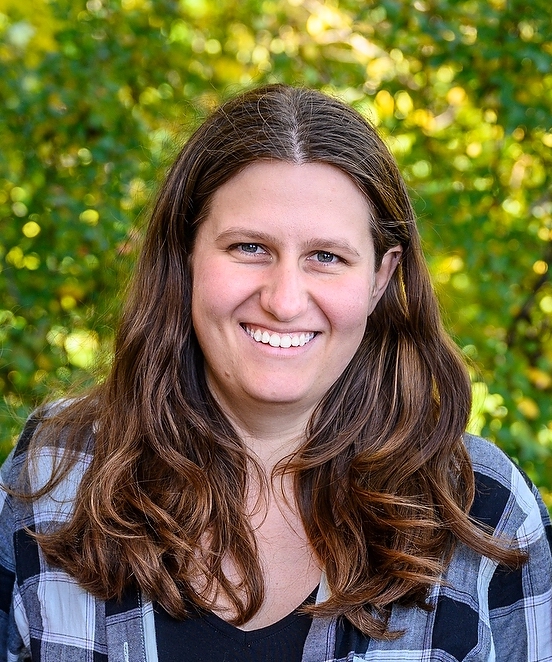 UW–Madison grad among 2025 Knauss Marine Policy Fellowship finalists
Elizabeth Berg, a recent Ph.D. graduate from the University of Wisconsin–Madison, is one of 88 early-career professionals who will spend the next year working alongside federal agencies or legislative offices in Washington, D.C.
UW–Madison grad among 2025 Knauss Marine Policy Fellowship finalists
Elizabeth Berg, a recent Ph.D. graduate from the University of Wisconsin–Madison, is one of 88 early-career professionals who will spend the next year working alongside federal agencies or legislative offices in Washington, D.C.
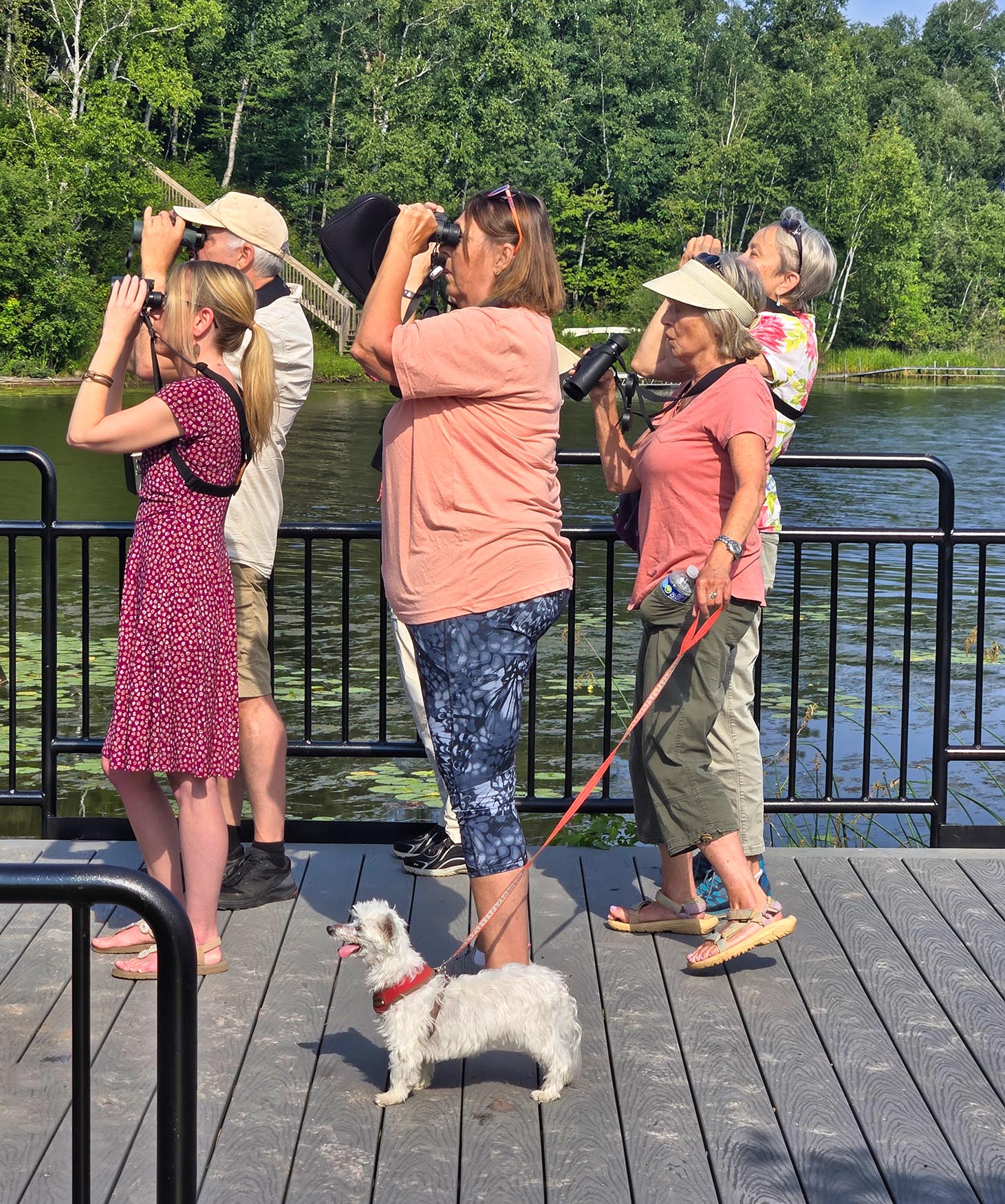 Everyone Can Bird, Fall Event Scheduled
Birders of all skills and abilities are invited to “Everyone Can Bird: Fall Migration,” 9:45 – 11:45 a.m., Saturday, Oct. 12, at Hawk Ridge Bird Observatory, 3980 E. Skyline Parkway, Duluth, Minnesota.
Everyone Can Bird, Fall Event Scheduled
Birders of all skills and abilities are invited to “Everyone Can Bird: Fall Migration,” 9:45 – 11:45 a.m., Saturday, Oct. 12, at Hawk Ridge Bird Observatory, 3980 E. Skyline Parkway, Duluth, Minnesota.
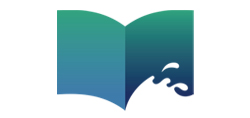 Great Lakes, Great Read 2024-2025 Program announces free webinar series
Great Lakes, Great Read, the “one book, one community” program designed to inspire passion and connection to the Great Lakes Watershed through reading, will kick off the season with a series of three webinars.
Great Lakes, Great Read 2024-2025 Program announces free webinar series
Great Lakes, Great Read, the “one book, one community” program designed to inspire passion and connection to the Great Lakes Watershed through reading, will kick off the season with a series of three webinars.
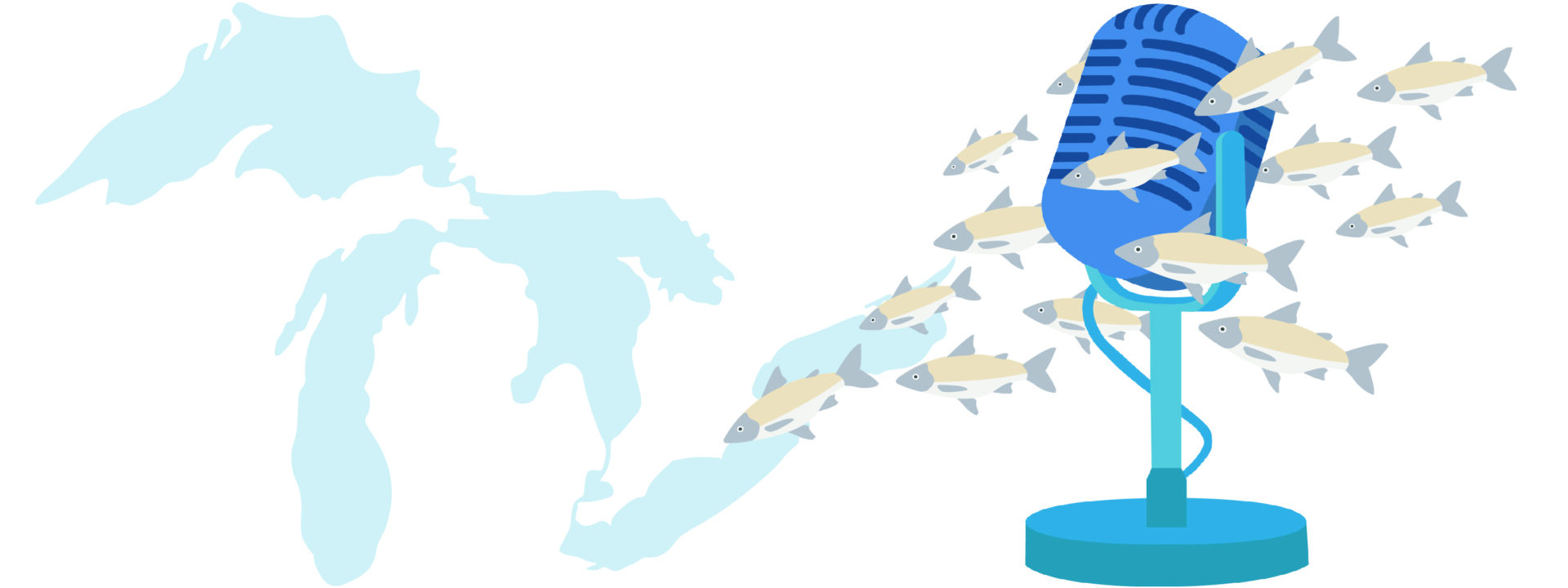 A Great Lakes, Great Read Storytelling Workshop
Learn the art and craft of telling a Great Lakes story. Crafting experiences into powerful memories to share is an art. Join Jen Rubin, storytelling expert and producer of Love Wisconsin, Oct 4-5 in Ashland for an interactive workshop that will help storytellers share their love for the Great Lakes.
A Great Lakes, Great Read Storytelling Workshop
Learn the art and craft of telling a Great Lakes story. Crafting experiences into powerful memories to share is an art. Join Jen Rubin, storytelling expert and producer of Love Wisconsin, Oct 4-5 in Ashland for an interactive workshop that will help storytellers share their love for the Great Lakes.
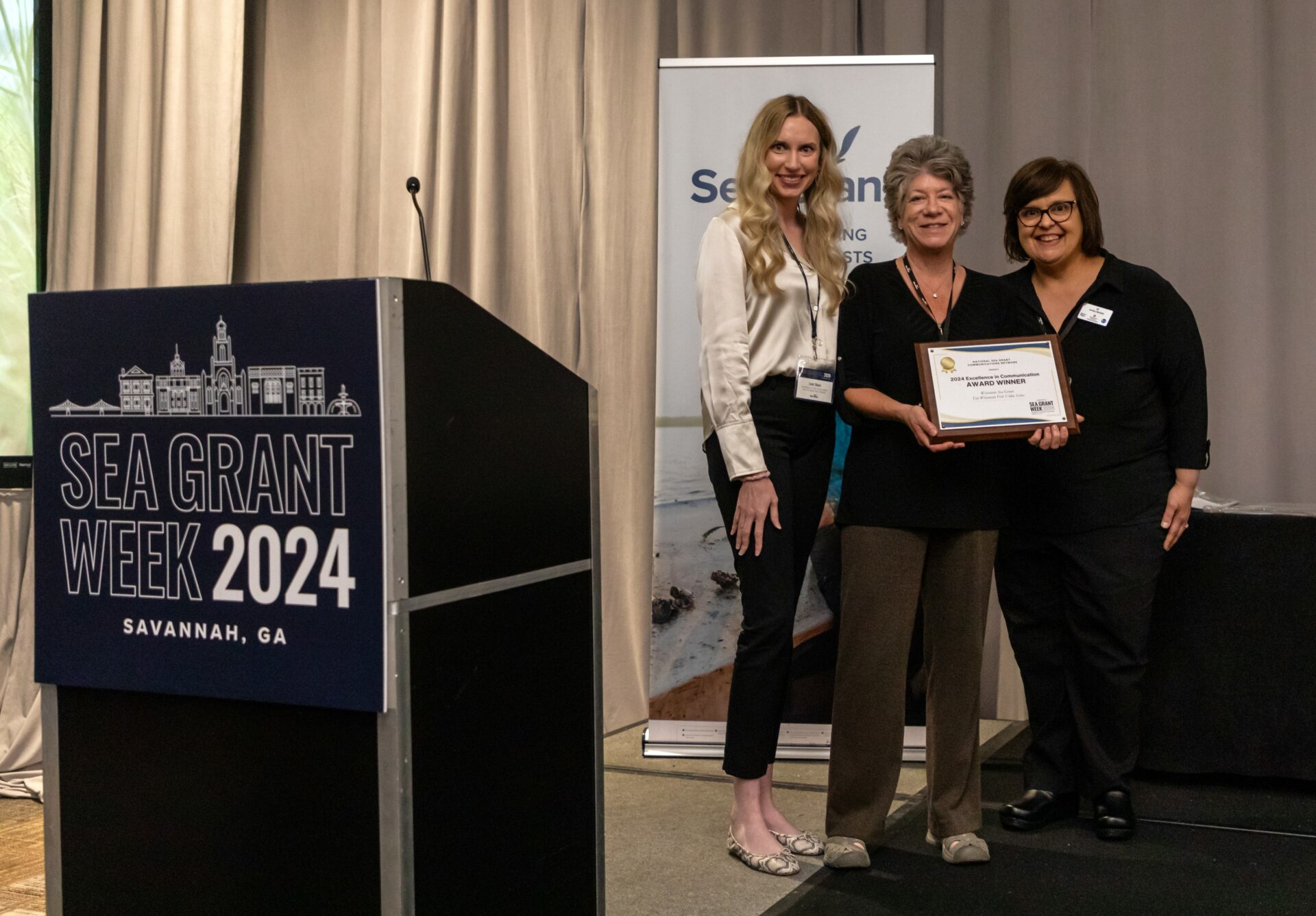 Eat Wisconsin Fish videos win communication award at Sea Grant Week
The nine-part series showcases commercial fishing and fish farming businesses in Wisconsin.
Eat Wisconsin Fish videos win communication award at Sea Grant Week
The nine-part series showcases commercial fishing and fish farming businesses in Wisconsin.
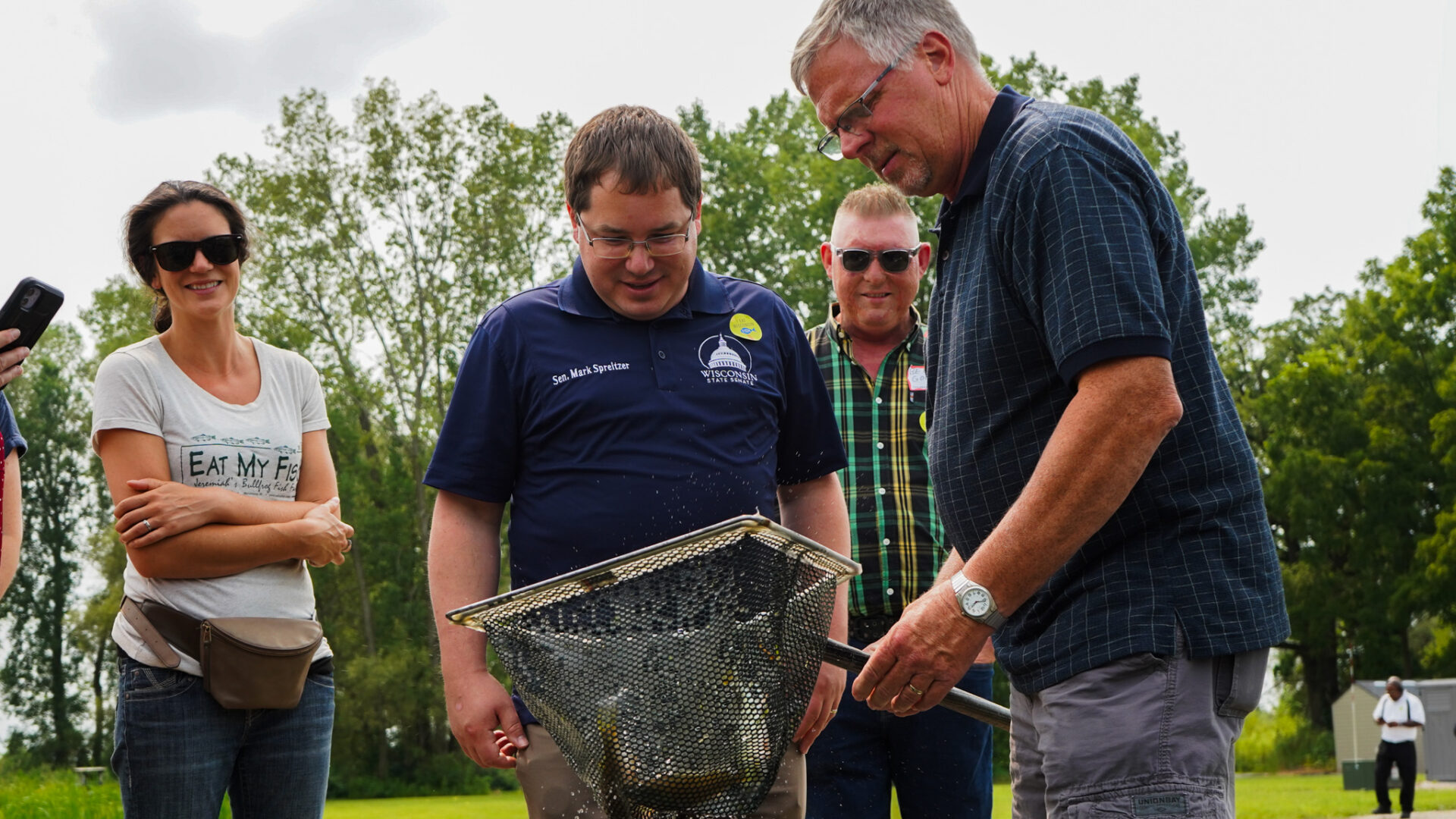 A fish farm field trip for Wisconsin decision-makers highlights challenges and future of aquaculture
The tour brought together fish farmers and lawmakers to discuss fish farming in Wisconsin.
A fish farm field trip for Wisconsin decision-makers highlights challenges and future of aquaculture
The tour brought together fish farmers and lawmakers to discuss fish farming in Wisconsin.
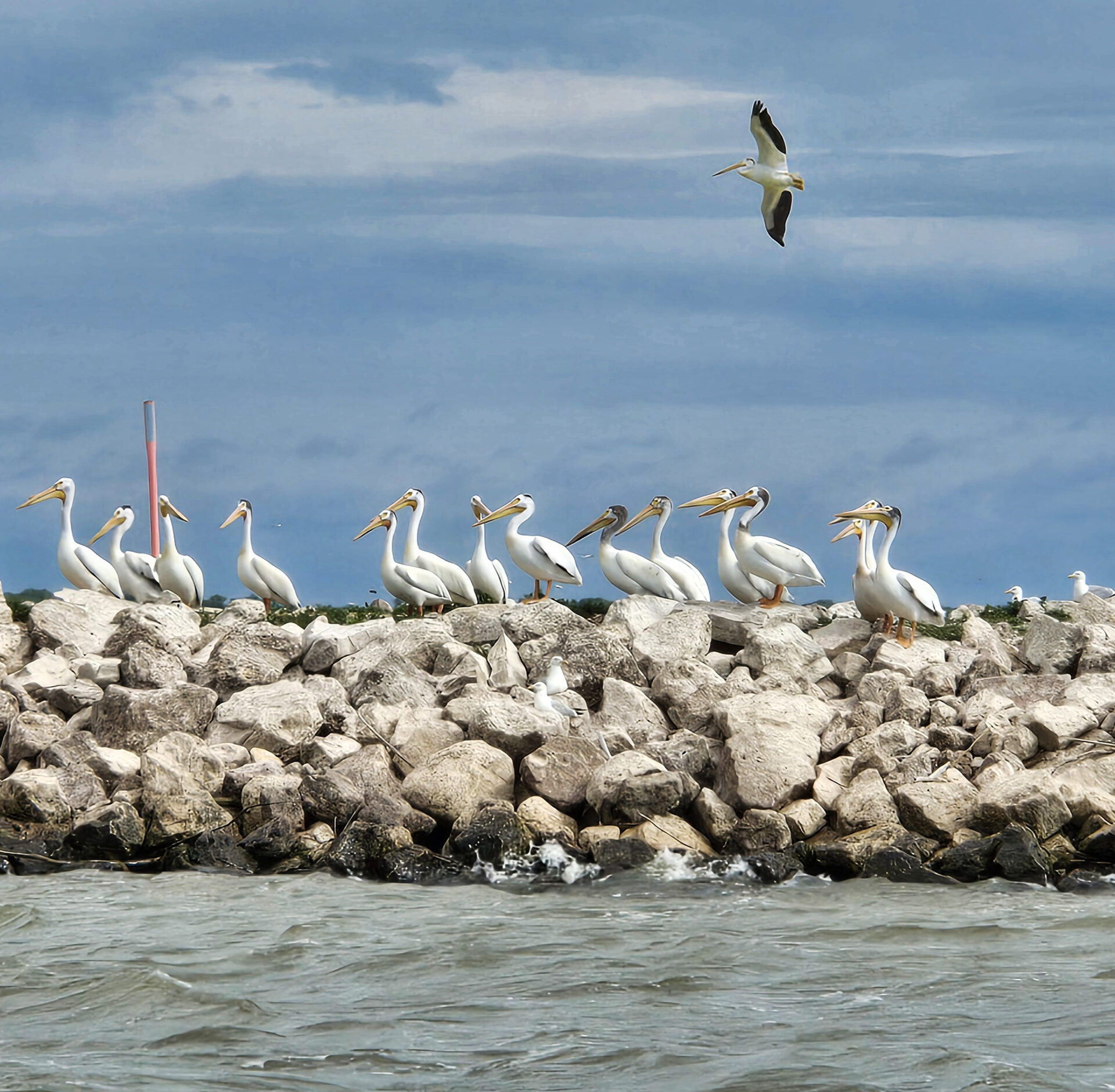 Using Sound to Connect People to Green Bay
On a sunny morning in mid-June, the Phoenix, University of Wisconsin-Green Bay’s research vessel, headed out onto the bay. Aboard were Sea Grant researchers Emily Tyner and Bill Sallak and a small mound of recording equipment. Tyner and Sallak’s project is associated with the development of a national estuarine research reserve on the bay. They planned to record natural noises from the bay, particularly bird sounds from the Cat Island Chain. They hope their audio project will connect the community to the bay, which has been shunned in the past due to environmental issues. The boat tour was only supposed to last for three hours but like in the theme song for the “Gilligan’s Island” television show, a mishap was involved.
Using Sound to Connect People to Green Bay
On a sunny morning in mid-June, the Phoenix, University of Wisconsin-Green Bay’s research vessel, headed out onto the bay. Aboard were Sea Grant researchers Emily Tyner and Bill Sallak and a small mound of recording equipment. Tyner and Sallak’s project is associated with the development of a national estuarine research reserve on the bay. They planned to record natural noises from the bay, particularly bird sounds from the Cat Island Chain. They hope their audio project will connect the community to the bay, which has been shunned in the past due to environmental issues. The boat tour was only supposed to last for three hours but like in the theme song for the “Gilligan’s Island” television show, a mishap was involved.
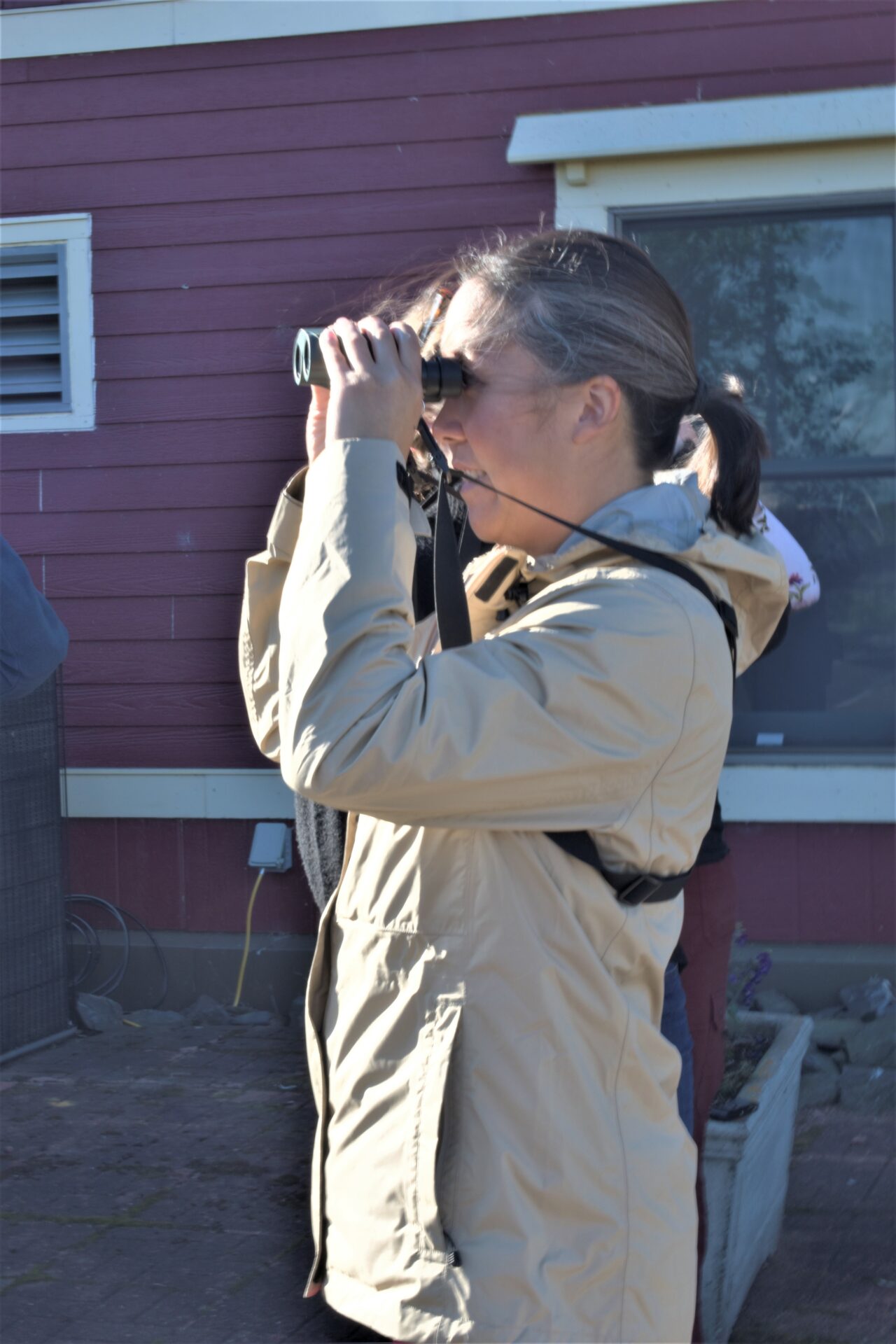 Everyone Can Bird, Second of Three Accessible Birding Events
All are invited to attend the second in a series of three free events designed for birders of all skills and abilities. Join “Everyone Can Bird: Graduation to Migration,” 9:30 – 11:30 a.m., Wednesday, Aug. 14, at the Millennium Trail off N. 28th Street and Wyoming Avenue, Superior, Wisconsin.
Everyone Can Bird, Second of Three Accessible Birding Events
All are invited to attend the second in a series of three free events designed for birders of all skills and abilities. Join “Everyone Can Bird: Graduation to Migration,” 9:30 – 11:30 a.m., Wednesday, Aug. 14, at the Millennium Trail off N. 28th Street and Wyoming Avenue, Superior, Wisconsin.
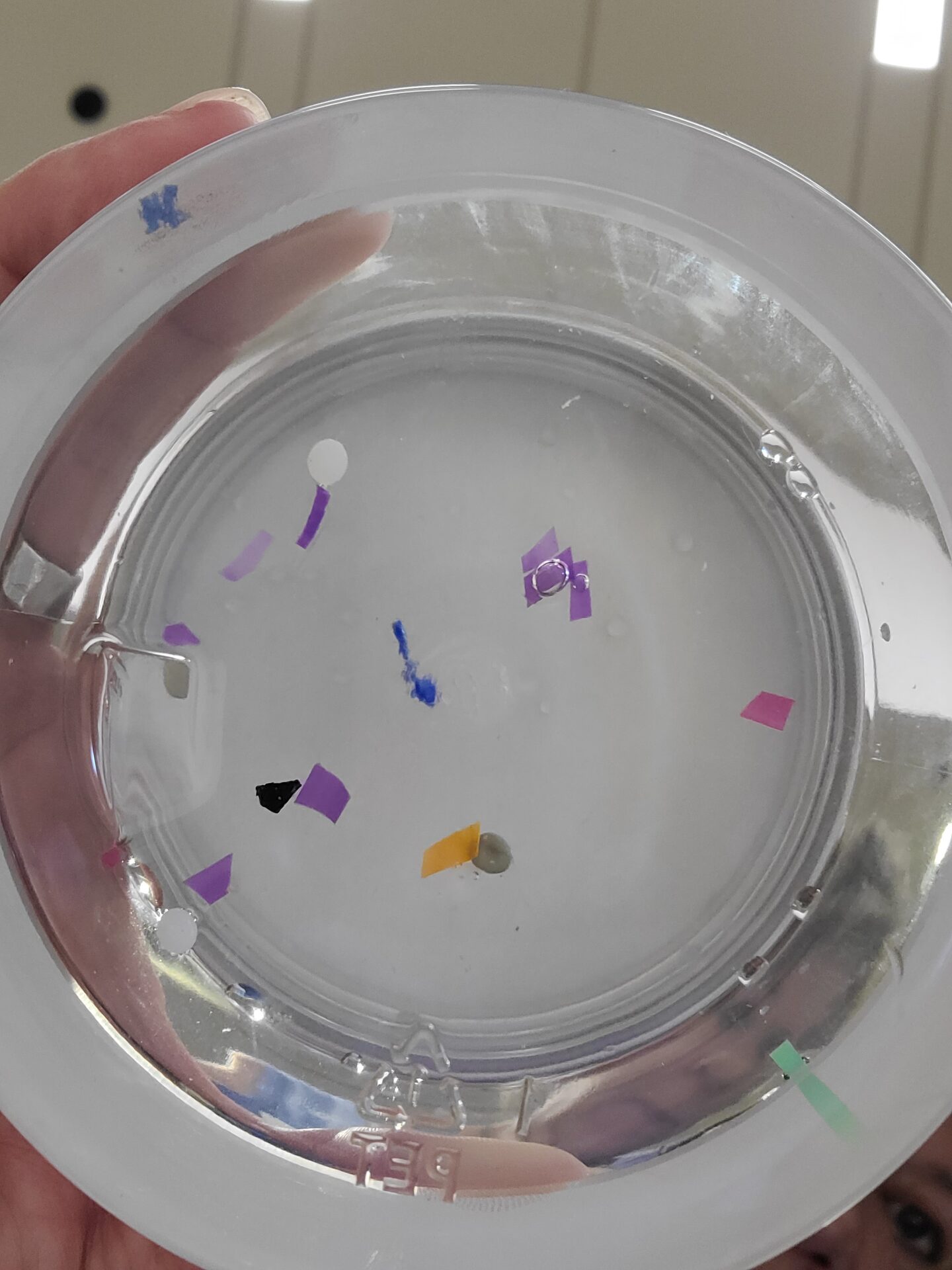 Two Wisconsin marine debris projects funded by NOAA
A project that deals with microplastic accumulation in the Great Lakes food web and another that will work with Milwaukee’s fashion community to reduce microplastic debris in waterways were awarded funding recently by the National Oceanic and Atmospheric Administration.
Two Wisconsin marine debris projects funded by NOAA
A project that deals with microplastic accumulation in the Great Lakes food web and another that will work with Milwaukee’s fashion community to reduce microplastic debris in waterways were awarded funding recently by the National Oceanic and Atmospheric Administration.
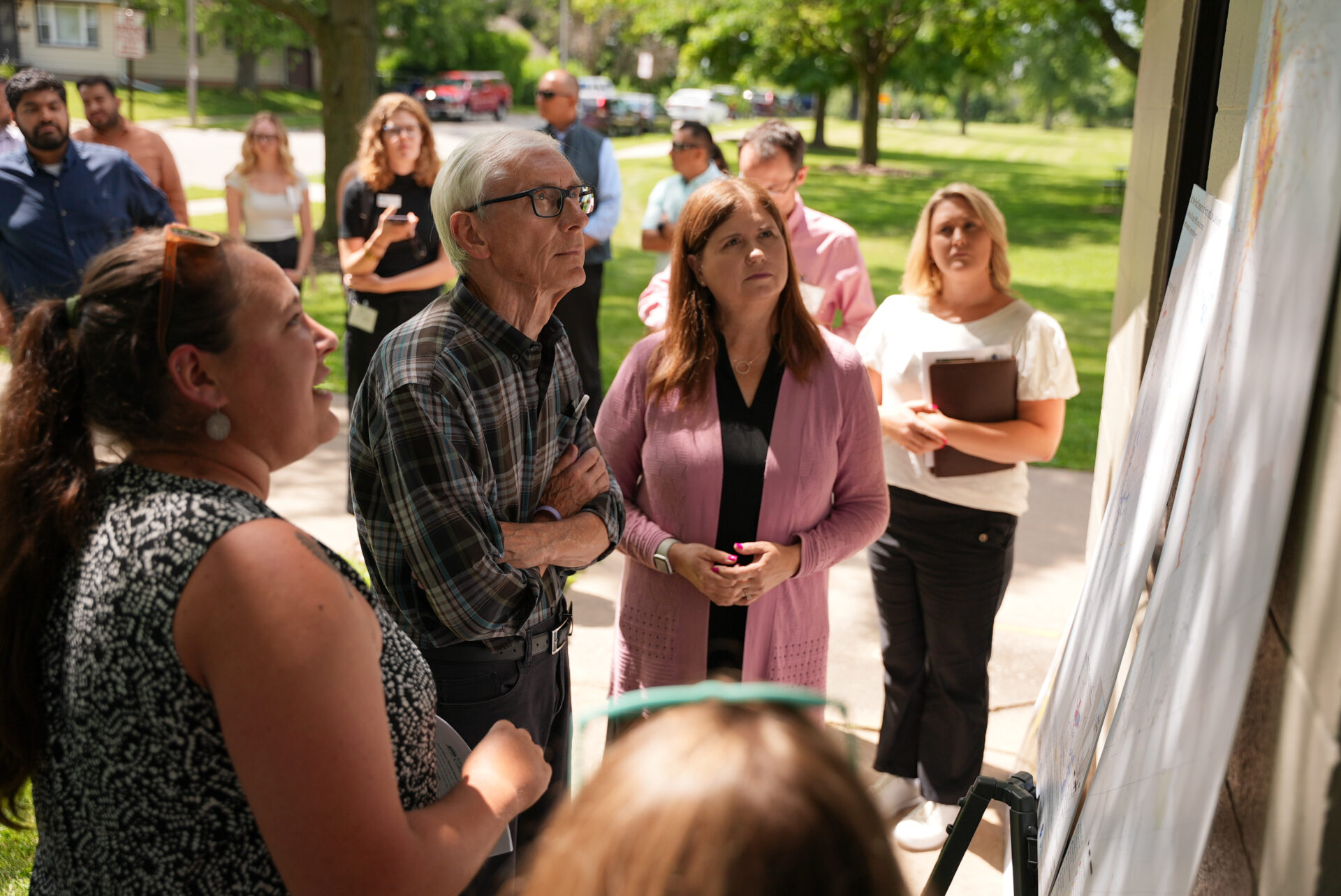 East River Collaborative garners a visit from the governor and new grant funding
Gov. Tony Evers visits with the East River Collaborative team.
East River Collaborative garners a visit from the governor and new grant funding
Gov. Tony Evers visits with the East River Collaborative team.
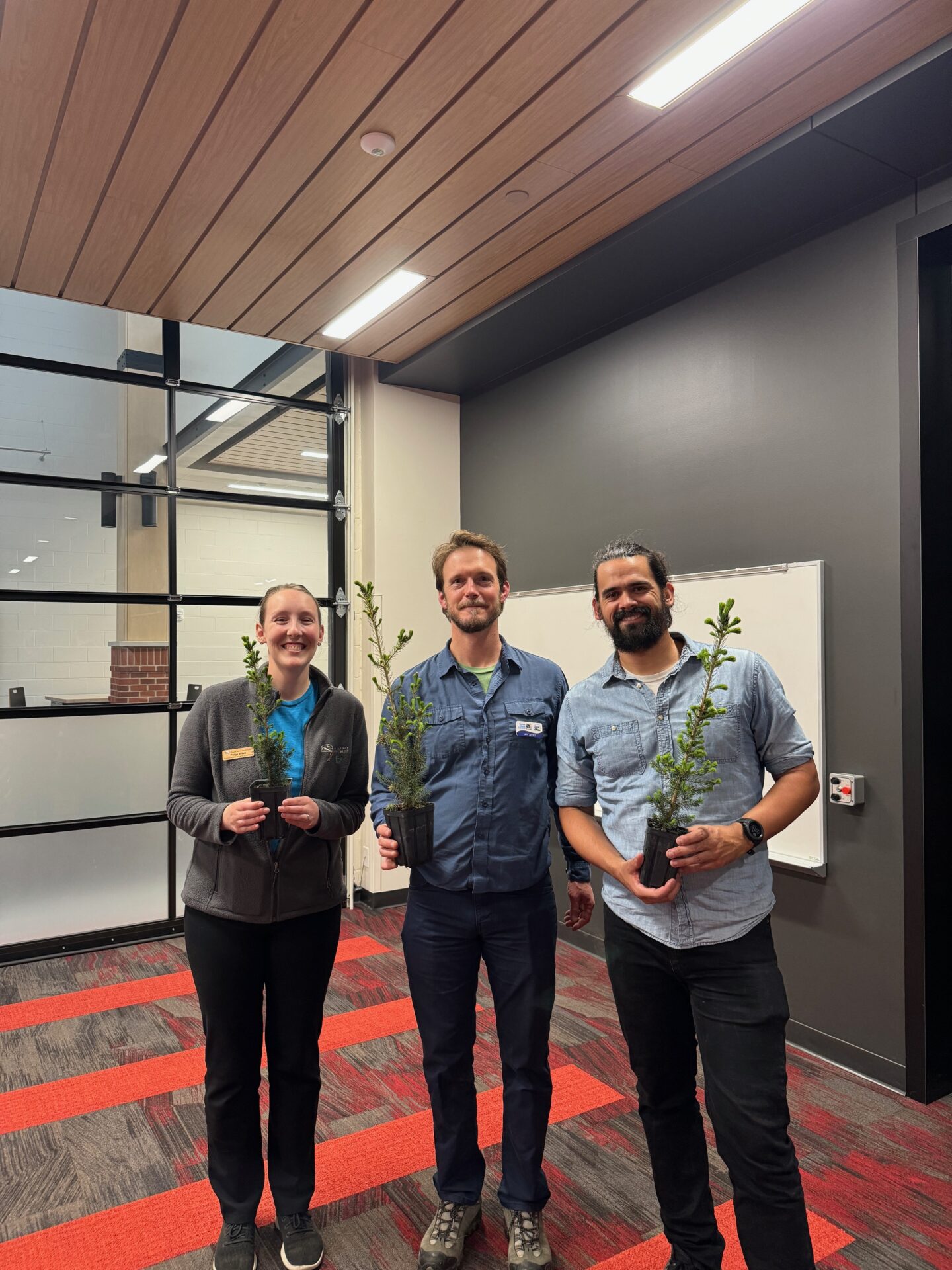 Gauging risk with rain gauges: Flood resilience fellow recruits volunteer weather observers at Door County event
Former Keillor Fellow addresses the need for more rainfall data in northeast Wisconsin.
Gauging risk with rain gauges: Flood resilience fellow recruits volunteer weather observers at Door County event
Former Keillor Fellow addresses the need for more rainfall data in northeast Wisconsin.
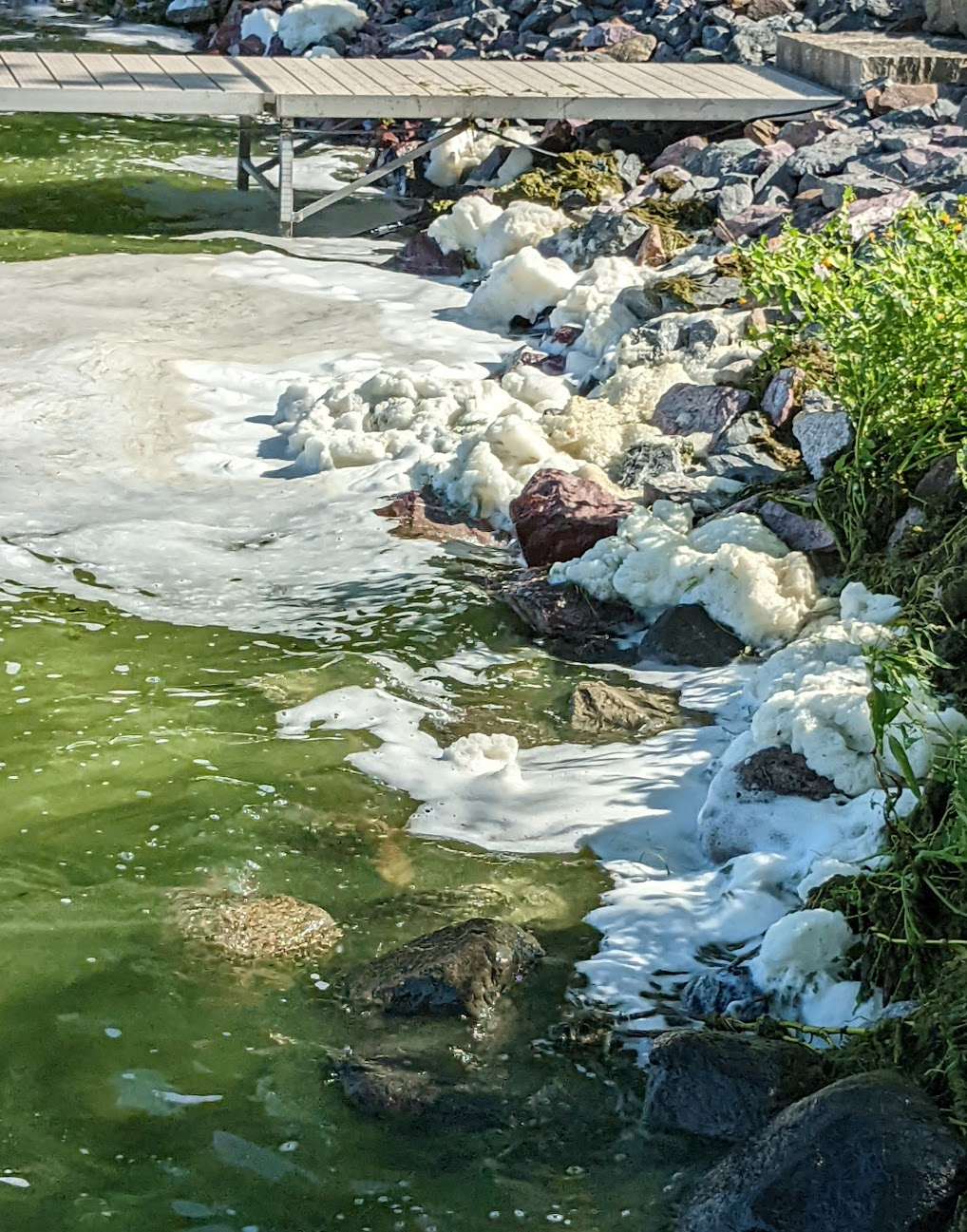 Lake and river foams study reveals high PFAS levels, even though underlying water may be less contaminated
A new PFAS study found that natural foams on water contain high concentrations of the contaminants.
Lake and river foams study reveals high PFAS levels, even though underlying water may be less contaminated
A new PFAS study found that natural foams on water contain high concentrations of the contaminants.
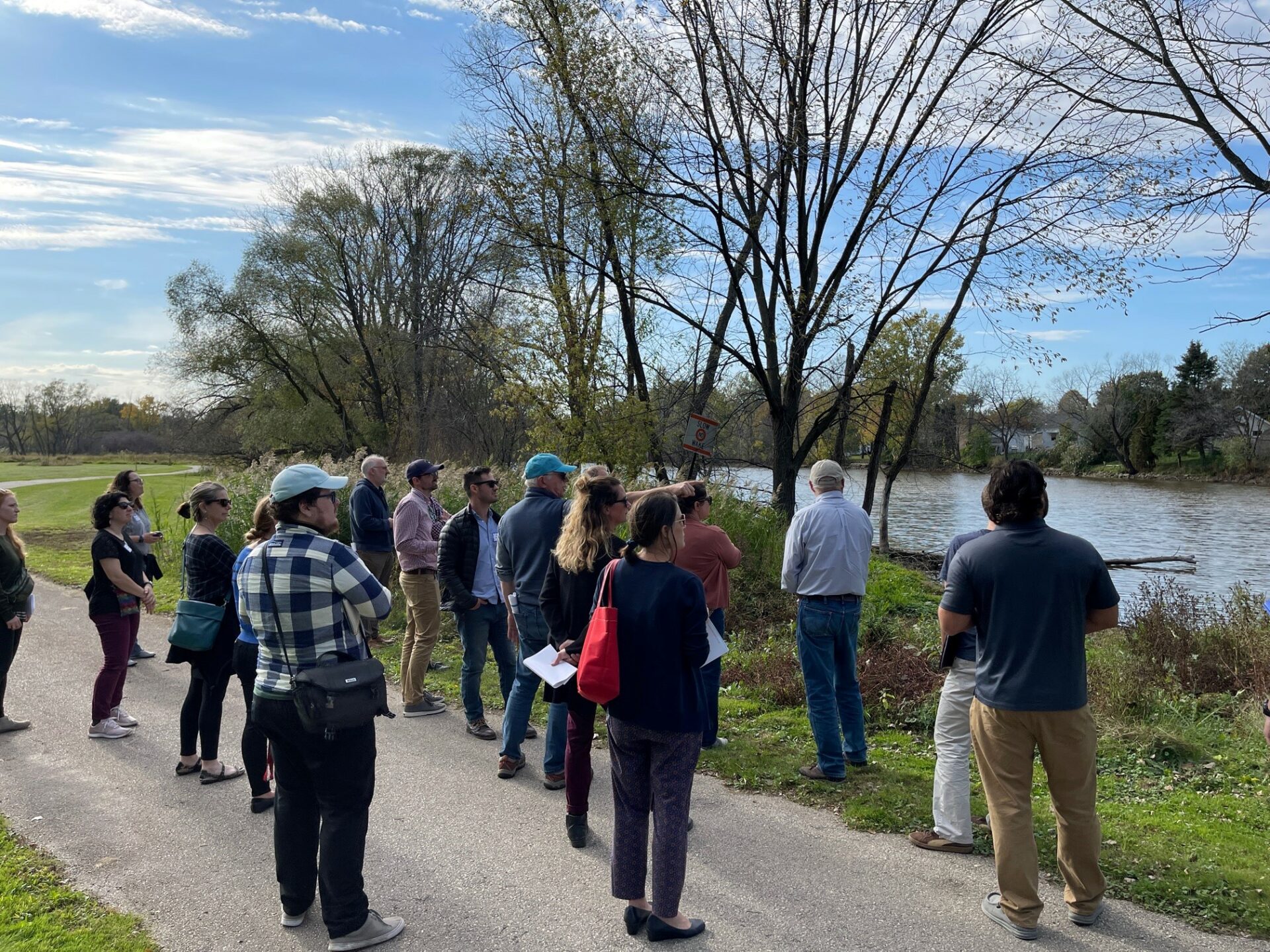 Northeastern Wisconsin communities build flood resilience at the local and watershed level
The East River Collaborative brings communities together to clean, slow and capture stormwater.
Northeastern Wisconsin communities build flood resilience at the local and watershed level
The East River Collaborative brings communities together to clean, slow and capture stormwater.
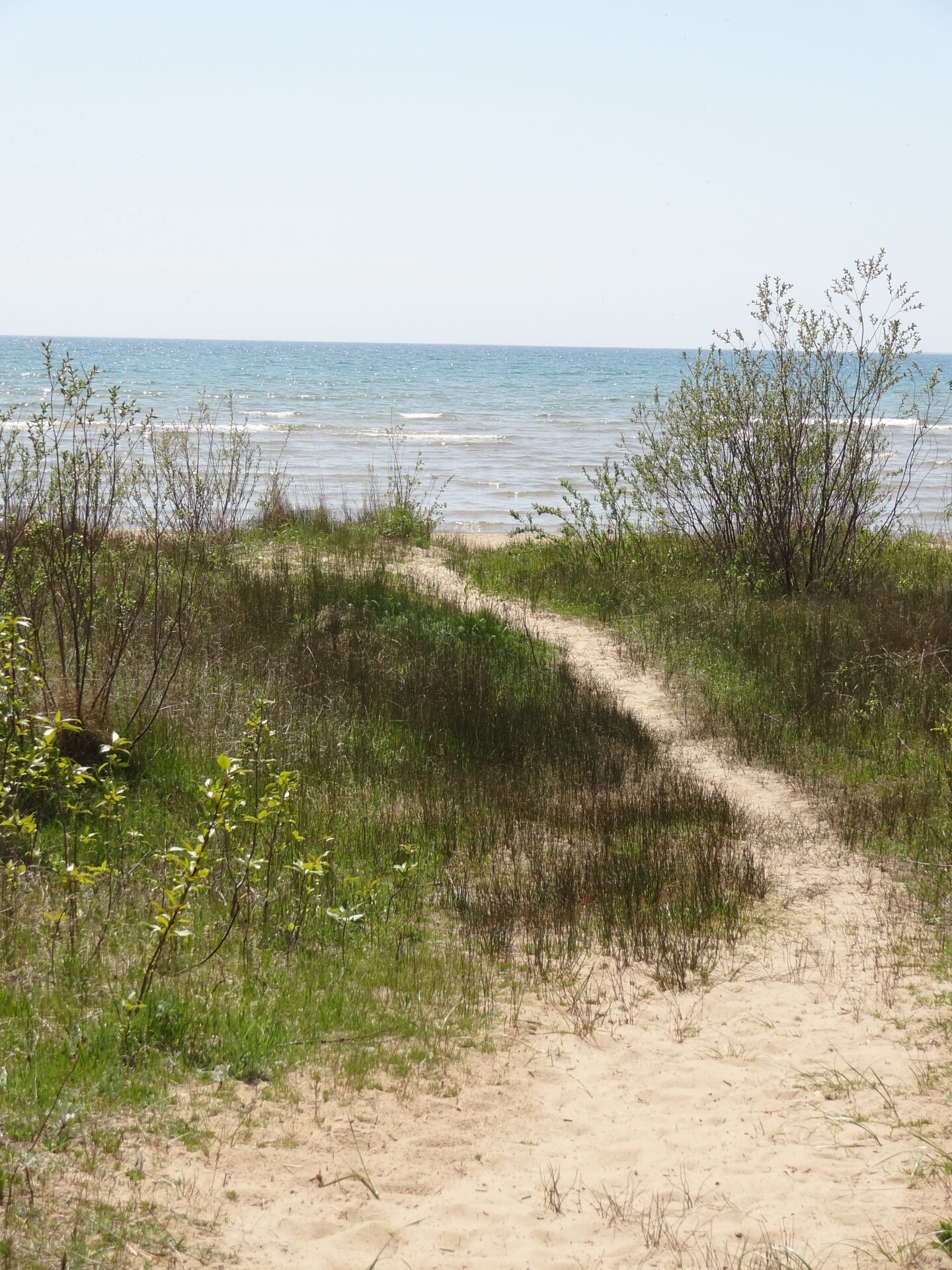 Checking beach health virtually
We've updated video tutorials and training modules that accompany Virtual Beach, a free Windows software program developed by the U.S. EPA for beach managers to make beach monitoring more timely and cost-effective.
Checking beach health virtually
We've updated video tutorials and training modules that accompany Virtual Beach, a free Windows software program developed by the U.S. EPA for beach managers to make beach monitoring more timely and cost-effective.
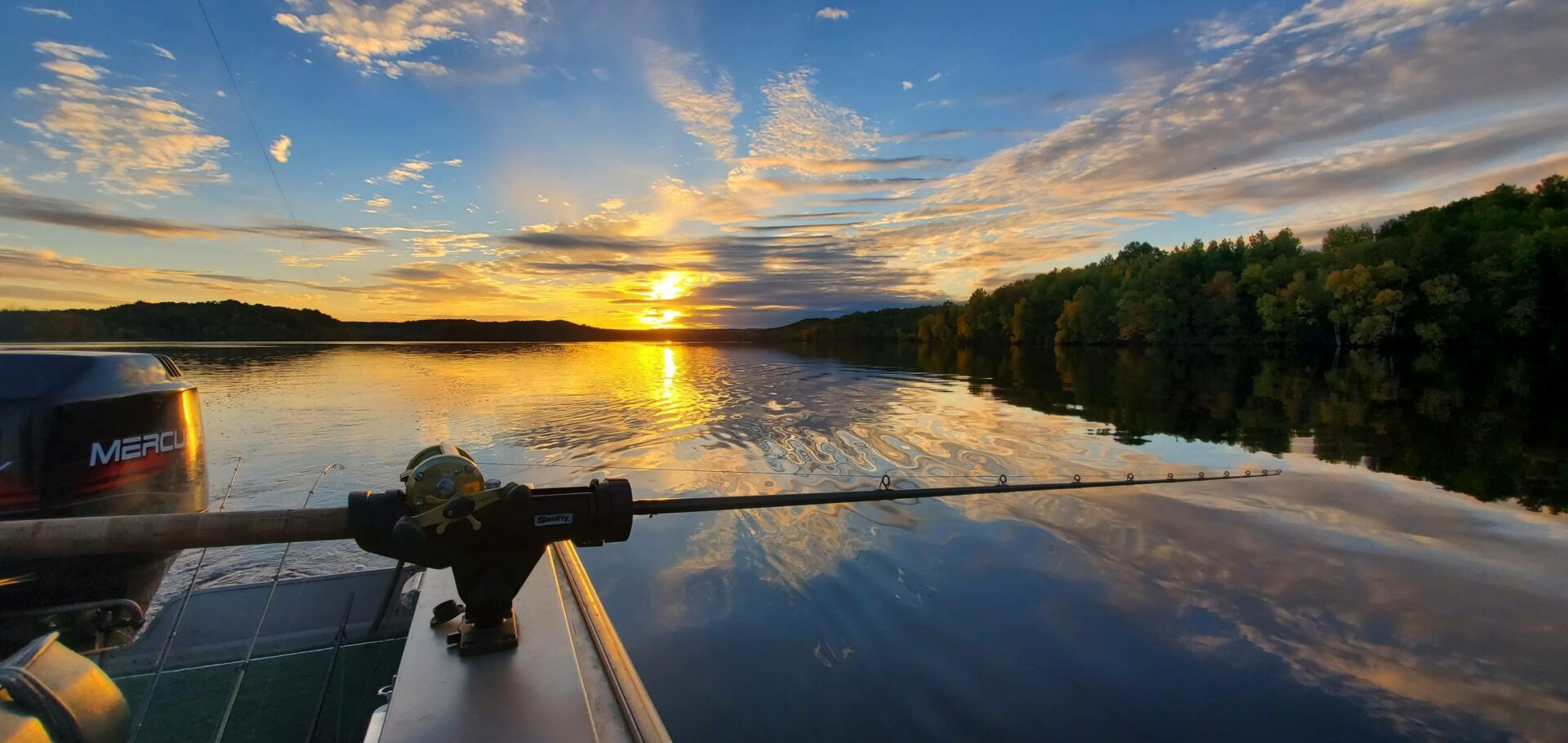 Heading for the St. Louis River? Local groups offer water safety tips
Thanks to pollution remedies and controls combined with habitat restoration, the St. Louis River is cleaner than it has been in decades. Despite these improvements, there are still safety hazards people should consider before recreating. Local partners offer tips for appropriate precautions.
Heading for the St. Louis River? Local groups offer water safety tips
Thanks to pollution remedies and controls combined with habitat restoration, the St. Louis River is cleaner than it has been in decades. Despite these improvements, there are still safety hazards people should consider before recreating. Local partners offer tips for appropriate precautions.
 Wisconsin Sea Grant staff contribute to special “Oceanography” journal issue
Sea Grant research and outreach projects took center stage in the latest issue of “Oceanography,” the official journal of The Oceanography Society. The issue includes articles written by four Wisconsin Sea Grant staff members.
Wisconsin Sea Grant staff contribute to special “Oceanography” journal issue
Sea Grant research and outreach projects took center stage in the latest issue of “Oceanography,” the official journal of The Oceanography Society. The issue includes articles written by four Wisconsin Sea Grant staff members.
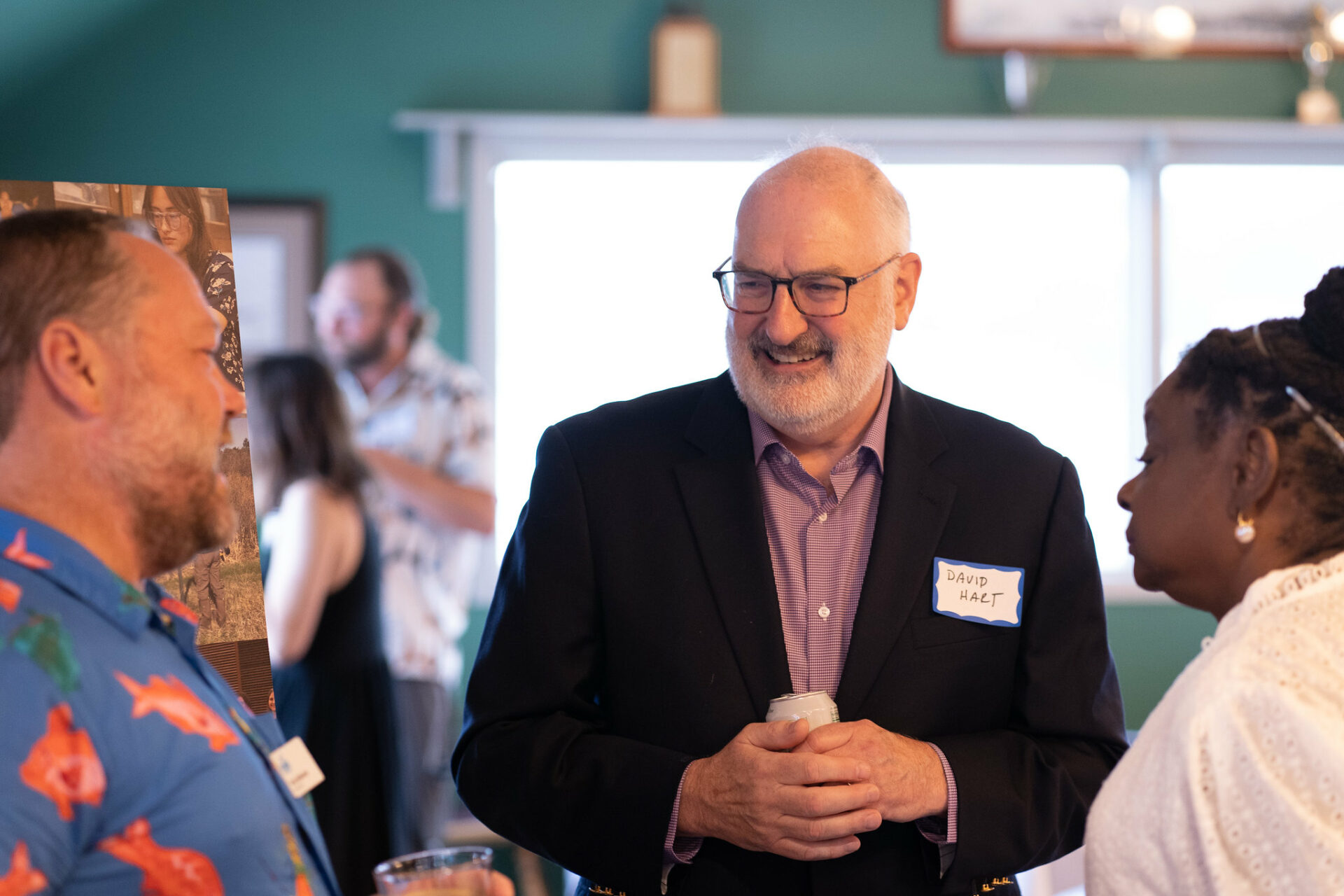 Hart wins prestigious outreach award in honor of service to Wisconsin
David Hart has been named the winner of the 2024 Robert and Carroll Heideman Award for Excellence in Public Service and Outreach at the University of Wisconsin-Madison.
Hart wins prestigious outreach award in honor of service to Wisconsin
David Hart has been named the winner of the 2024 Robert and Carroll Heideman Award for Excellence in Public Service and Outreach at the University of Wisconsin-Madison.
 Great Lakes, Great Read shared-reading initiative announces book selections
A children's book and a selection written for adults were named today as the two community reads for a new Great Lakes Basin initiative meant to foster connections between communities and the lakes as well as deepen learning.
Great Lakes, Great Read shared-reading initiative announces book selections
A children's book and a selection written for adults were named today as the two community reads for a new Great Lakes Basin initiative meant to foster connections between communities and the lakes as well as deepen learning.
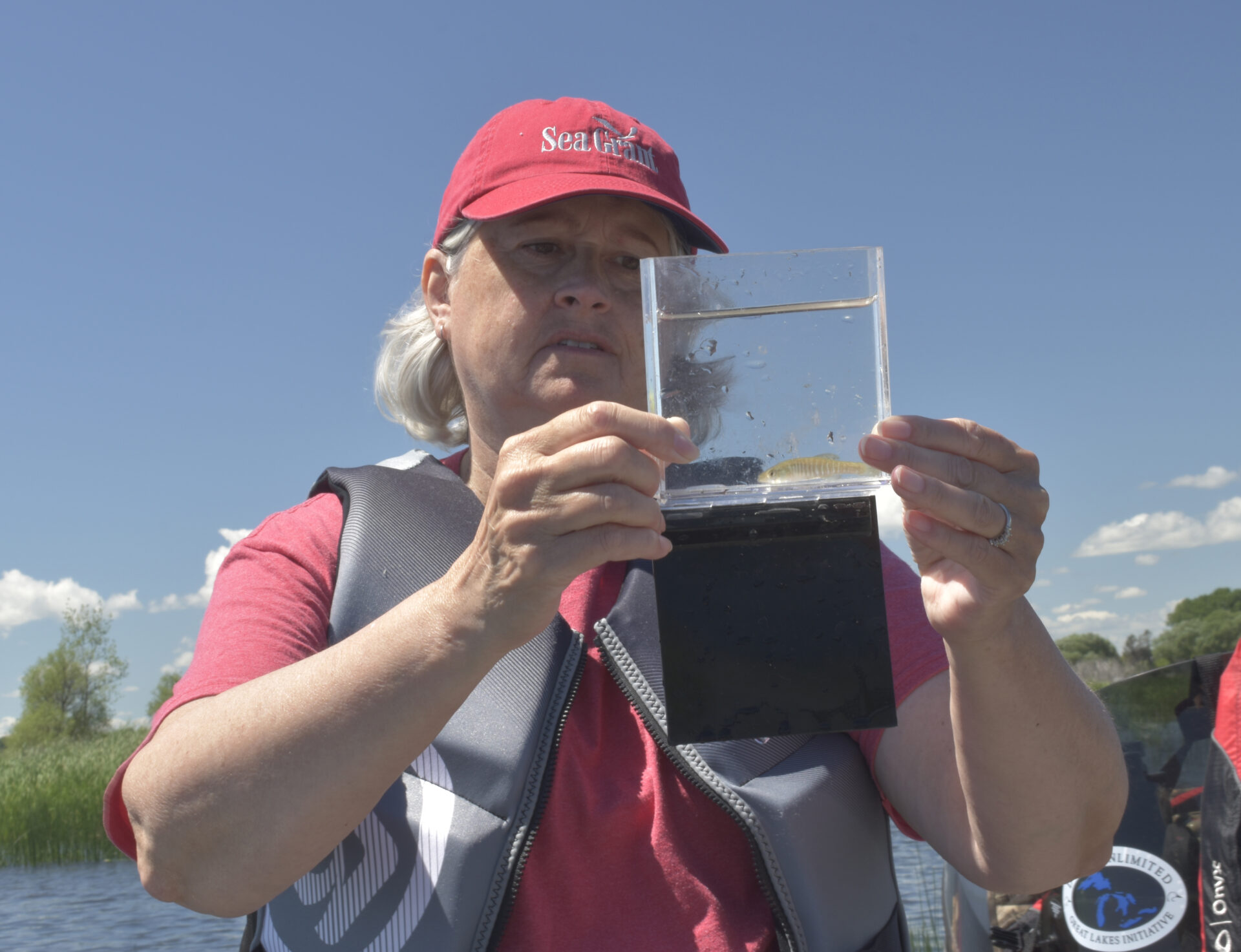 Sea Grant communications director plunges into retirement
Moira Harrington, Wisconsin Sea Grant assistant director for communications, recently announced plans to retire, effective June 14. Rather than tiptoe into the waters of retirement gradually, Harrington will dive right in, making the decision only three months beforehand.
Sea Grant communications director plunges into retirement
Moira Harrington, Wisconsin Sea Grant assistant director for communications, recently announced plans to retire, effective June 14. Rather than tiptoe into the waters of retirement gradually, Harrington will dive right in, making the decision only three months beforehand.
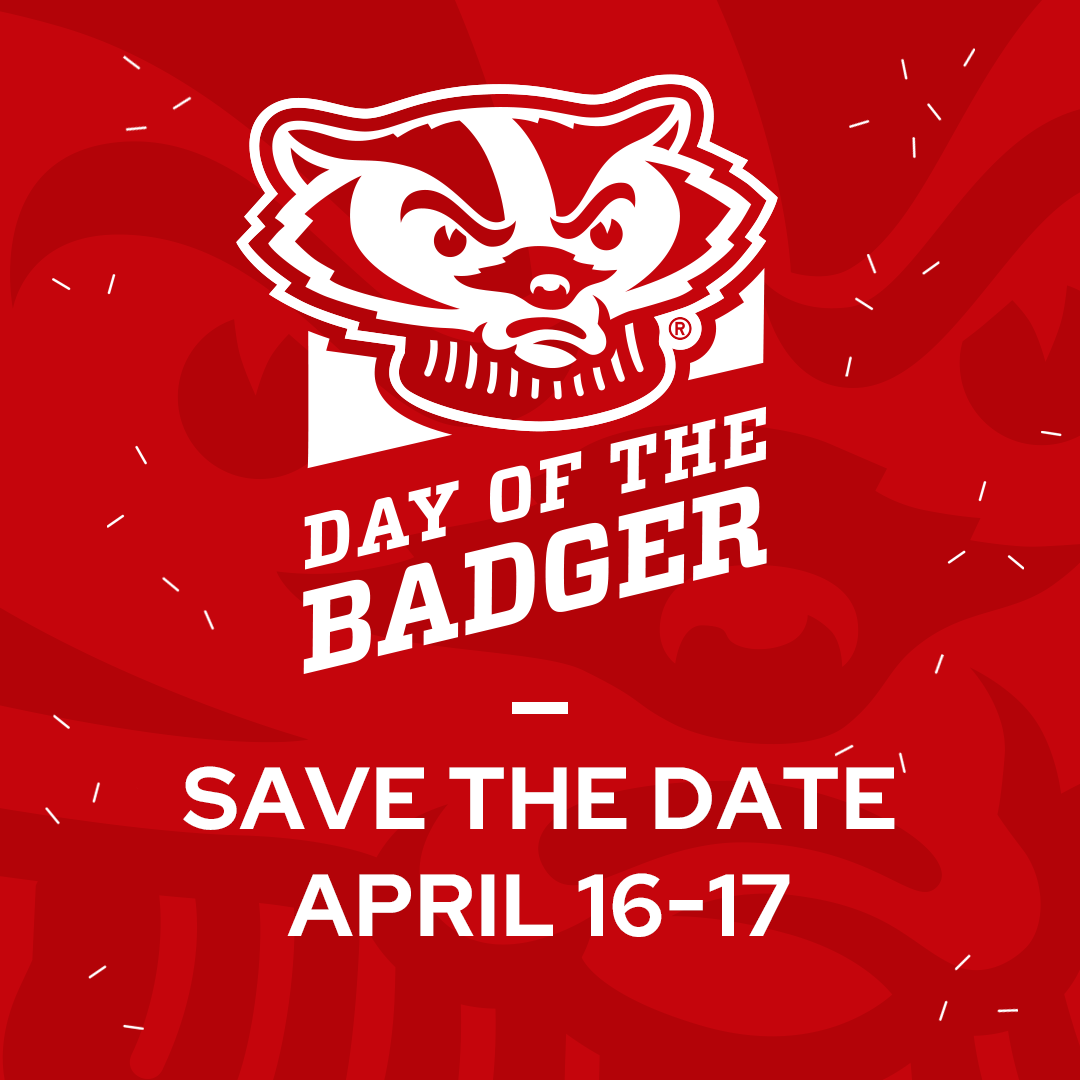 Day of the Badger returns April 16–17
Join us in celebrating Wisconsin Sea Grant and the Water Resources Institute with Day of the Badger on April 16-17.
Day of the Badger returns April 16–17
Join us in celebrating Wisconsin Sea Grant and the Water Resources Institute with Day of the Badger on April 16-17.
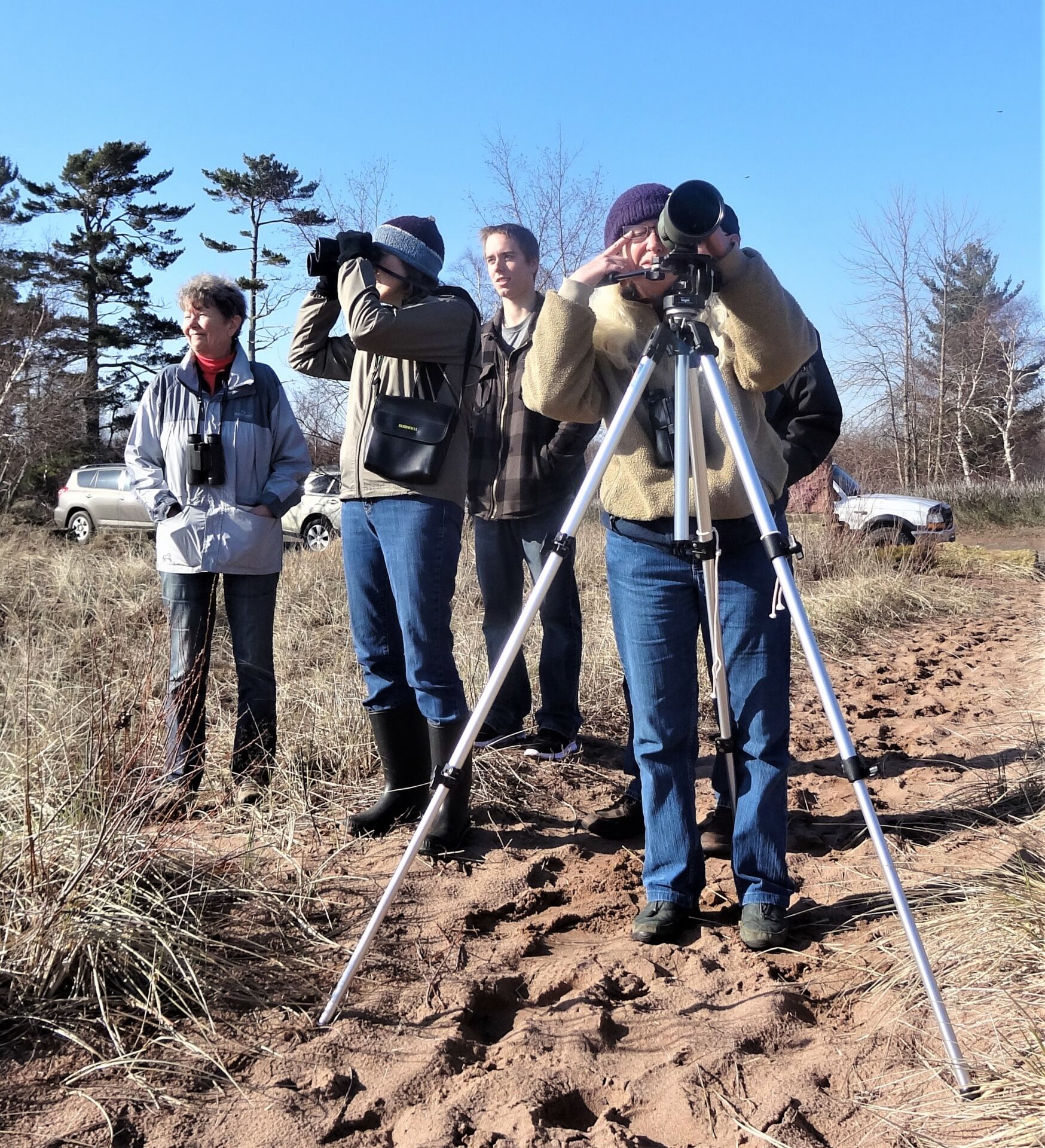 Everyone Can Bird, First of Three Accessible Birding Events
All are invited to attend the first in a series of three free events designed for birders of all skills and abilities. Join “Everyone Can Bird: Spring Migration,” 9:30 – 11:30 a.m., Sunday, May 5, at Chambers Grove Park in Duluth, Minnesota.
Everyone Can Bird, First of Three Accessible Birding Events
All are invited to attend the first in a series of three free events designed for birders of all skills and abilities. Join “Everyone Can Bird: Spring Migration,” 9:30 – 11:30 a.m., Sunday, May 5, at Chambers Grove Park in Duluth, Minnesota.
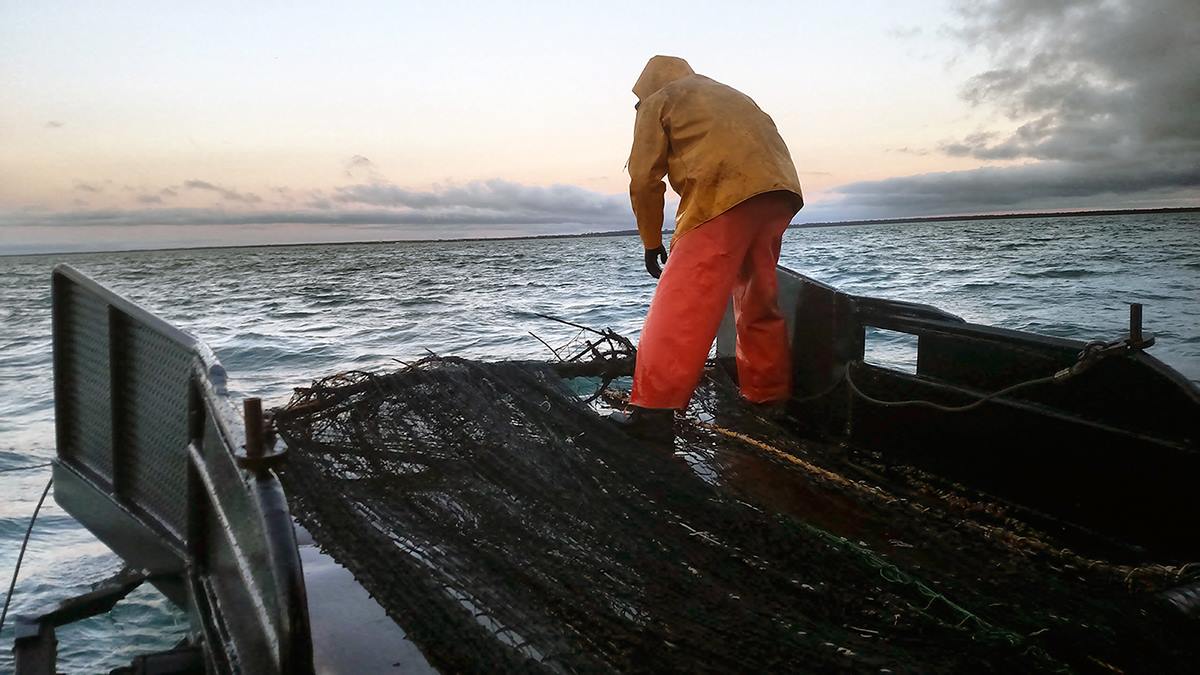 Training the next generation of Great Lakes commercial fishers
The Great Lakes Future Fishers Initiative will train those new to the Great Lakes commercial fishing and processing industry.
Training the next generation of Great Lakes commercial fishers
The Great Lakes Future Fishers Initiative will train those new to the Great Lakes commercial fishing and processing industry.
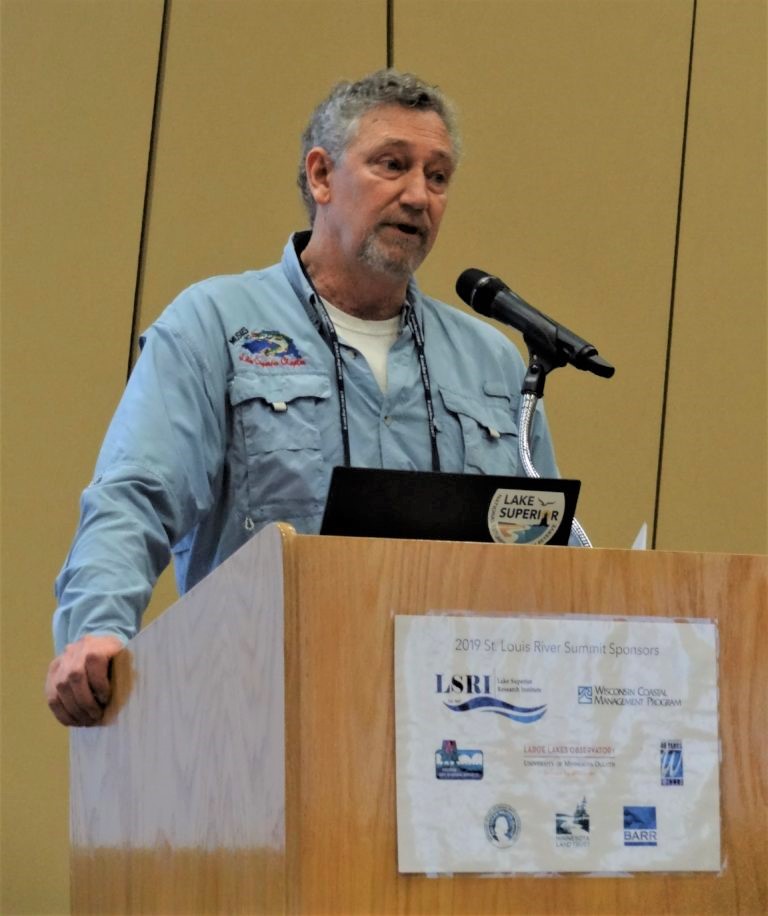 Muskies and the St. Louis River
The next River Talk will be at 6:30 p.m. Wednesday, April 10, with “Muskies and the St. Louis River,” an in-person presentation by Keith Okeson with Lake Superior Chapter of Muskies Inc.. His talk will be held at the Lake Superior Estuarium (3 Marina Dr., Superior, Wis.).
Muskies and the St. Louis River
The next River Talk will be at 6:30 p.m. Wednesday, April 10, with “Muskies and the St. Louis River,” an in-person presentation by Keith Okeson with Lake Superior Chapter of Muskies Inc.. His talk will be held at the Lake Superior Estuarium (3 Marina Dr., Superior, Wis.).
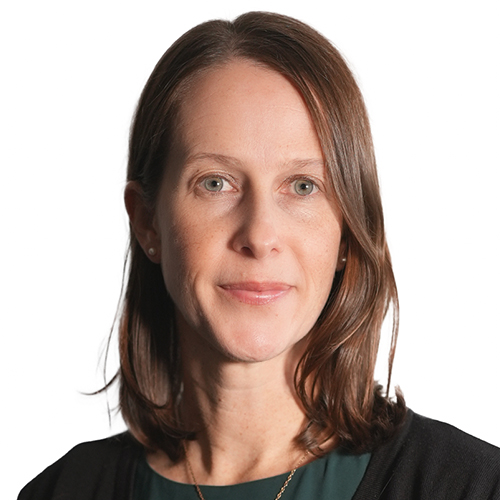 New federal funding will boost holistic PFAS research
Sea Grant Interim Director Christy Remucal will lead a new Center of Excellence in PFAS Environmental Science on the UW-Madison campus.
New federal funding will boost holistic PFAS research
Sea Grant Interim Director Christy Remucal will lead a new Center of Excellence in PFAS Environmental Science on the UW-Madison campus.
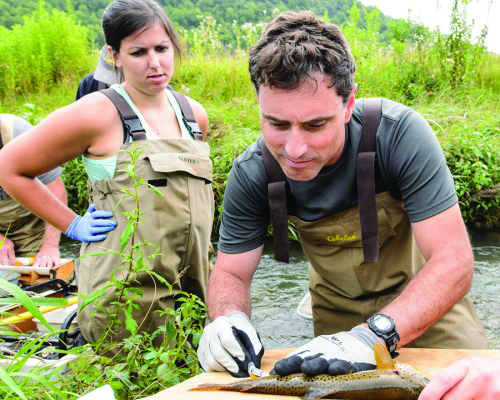 Wisconsin sport fish carry suite of new viruses
Researchers at the University of Wisconsin-Madison have detected a suite of new viruses in five species of Wisconsin sport fish. Although none pose a threat to human health, one is a type of coronavirus usually associated with birds. It was found in healthy walleyes from Wisconsin lakes.
Wisconsin sport fish carry suite of new viruses
Researchers at the University of Wisconsin-Madison have detected a suite of new viruses in five species of Wisconsin sport fish. Although none pose a threat to human health, one is a type of coronavirus usually associated with birds. It was found in healthy walleyes from Wisconsin lakes.
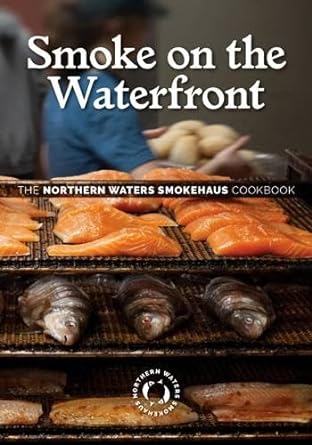 Northern Waters Smokehaus and Zenith Books featured on Wisconsin Sea Grant’s Fish Dish Podcast
The latest informative and fun 27-minute episode of The Fish Dish Podcast features interviews with the creators of “Smoke on the Waterfront: The Northern Waters Smokehaus Cookbook,” and with a staff member from Duluth, Minnesota’s Zenith Bookstore, who reviewed the book. A finalist for a 2024 Minnesota Book Award, the cookbook offers recipes for the Smokehaus’ famous fish and smoked meats.
Northern Waters Smokehaus and Zenith Books featured on Wisconsin Sea Grant’s Fish Dish Podcast
The latest informative and fun 27-minute episode of The Fish Dish Podcast features interviews with the creators of “Smoke on the Waterfront: The Northern Waters Smokehaus Cookbook,” and with a staff member from Duluth, Minnesota’s Zenith Bookstore, who reviewed the book. A finalist for a 2024 Minnesota Book Award, the cookbook offers recipes for the Smokehaus’ famous fish and smoked meats.
Carp, Cats, Perch and Pearls: Wisconsin’s Unsung Commercial Fishery
Carp, Cats, Perch and Pearls: Wisconsin’s Unsung Commercial Fishery By Sharon Moen Wisconsin Sea Grant exists because the state’s boundaries include parts of lakes Superior…
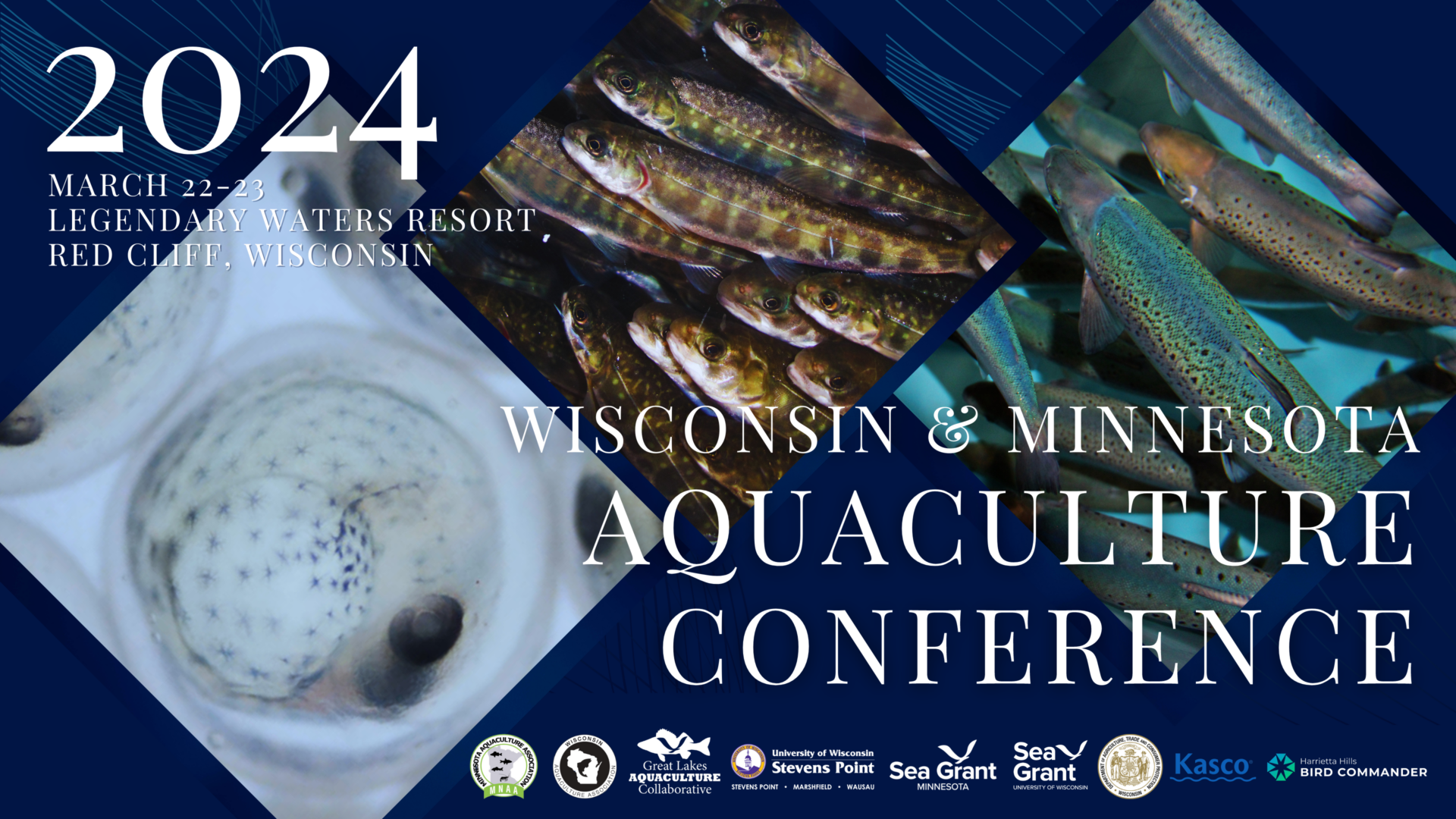 Wisconsin & Minnesota Aquaculture Conference showcases the latest in fish farming education and research
The Wisconsin & Minnesota Aquaculture Conference will be held March 22-23 and features research, demonstrations and tours of local fish farming facilities.
Wisconsin & Minnesota Aquaculture Conference showcases the latest in fish farming education and research
The Wisconsin & Minnesota Aquaculture Conference will be held March 22-23 and features research, demonstrations and tours of local fish farming facilities.
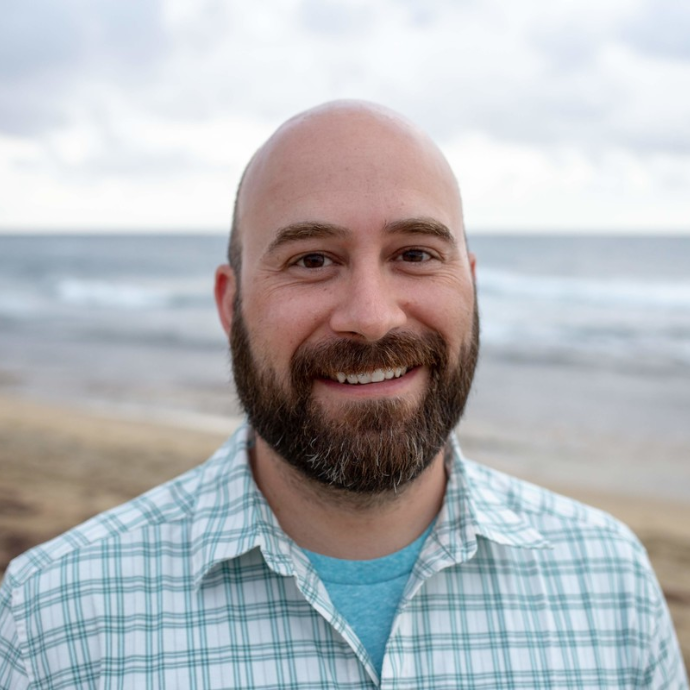 What Lies Below? Underwater Mapping
The next River Talk will be at 6:30 p.m. Wednesday, March 13, with “What Lies Below? Underwater Mapping Near and in the St. Louis River Estuary,” an in-person and virtual presentation by Brandon Krumwiede with the National Oceanic and Atmospheric Administration. His talk will be held at the Lake Superior Estuarium (3 Marina Dr., Superior, Wis.).
What Lies Below? Underwater Mapping
The next River Talk will be at 6:30 p.m. Wednesday, March 13, with “What Lies Below? Underwater Mapping Near and in the St. Louis River Estuary,” an in-person and virtual presentation by Brandon Krumwiede with the National Oceanic and Atmospheric Administration. His talk will be held at the Lake Superior Estuarium (3 Marina Dr., Superior, Wis.).
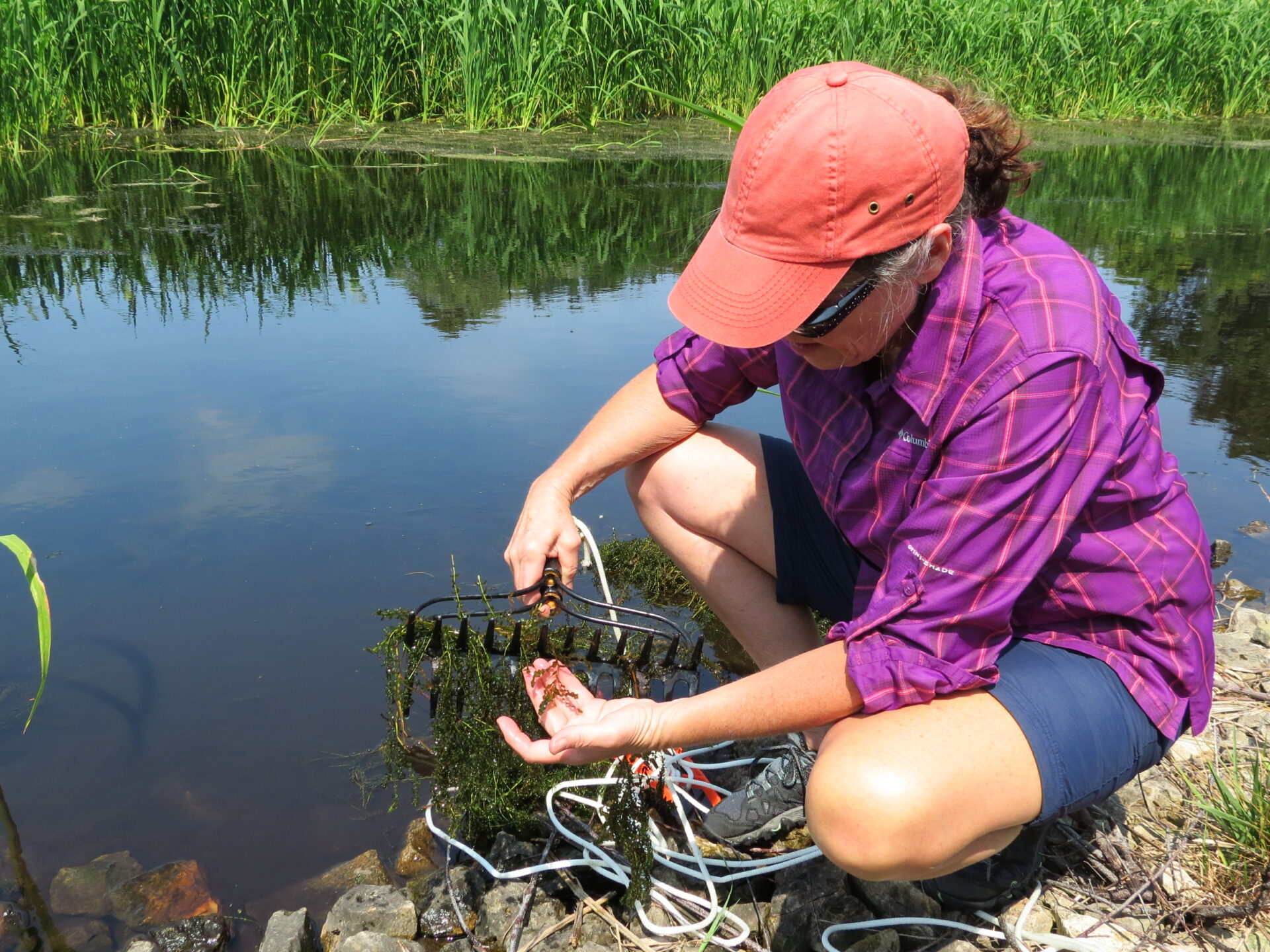 Negative emotions drive preference for herbicide treatments for aquatic invasive species in Wisconsin lakes
A new study published by University of Wisconsin-Madison researchers found that fear is a large driver in lakeshore property owners’ preferences for herbicide treatments of aquatic invasive plants over other management options, even if those treatments may harm native plants and animals.
Negative emotions drive preference for herbicide treatments for aquatic invasive species in Wisconsin lakes
A new study published by University of Wisconsin-Madison researchers found that fear is a large driver in lakeshore property owners’ preferences for herbicide treatments of aquatic invasive plants over other management options, even if those treatments may harm native plants and animals.
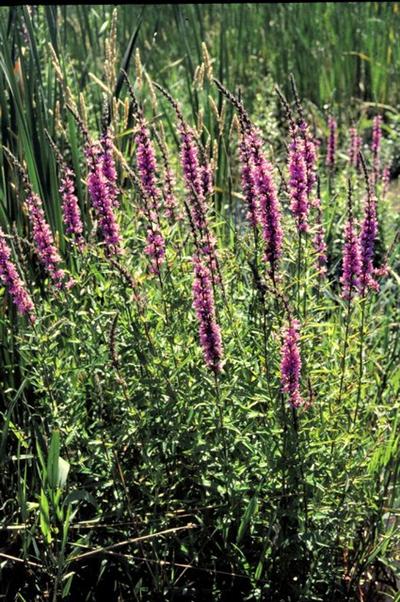 Invasive Species Language Workshop designed to get people talking
Registration is open for an “Invasive Species Language Workshop” that be held online and in-person on Feb. 27-28. A virtual half-day of webinar presentations will be followed by a full-day workshop in Washington, D.C., where attendees will draft guidelines and research priorities for inclusive communication and naming conventions.
Invasive Species Language Workshop designed to get people talking
Registration is open for an “Invasive Species Language Workshop” that be held online and in-person on Feb. 27-28. A virtual half-day of webinar presentations will be followed by a full-day workshop in Washington, D.C., where attendees will draft guidelines and research priorities for inclusive communication and naming conventions.
 St. Louis River Summit Celebrates an Enduring Future
Our partner, the Lake Superior National Estuarine Research Reserve is holding its 14th annual St. Louis River Summit March 6-7 with in-person sessions at the University of Wisconsin-Superior Yellowjacket Union and field trip options on March 8.
St. Louis River Summit Celebrates an Enduring Future
Our partner, the Lake Superior National Estuarine Research Reserve is holding its 14th annual St. Louis River Summit March 6-7 with in-person sessions at the University of Wisconsin-Superior Yellowjacket Union and field trip options on March 8.
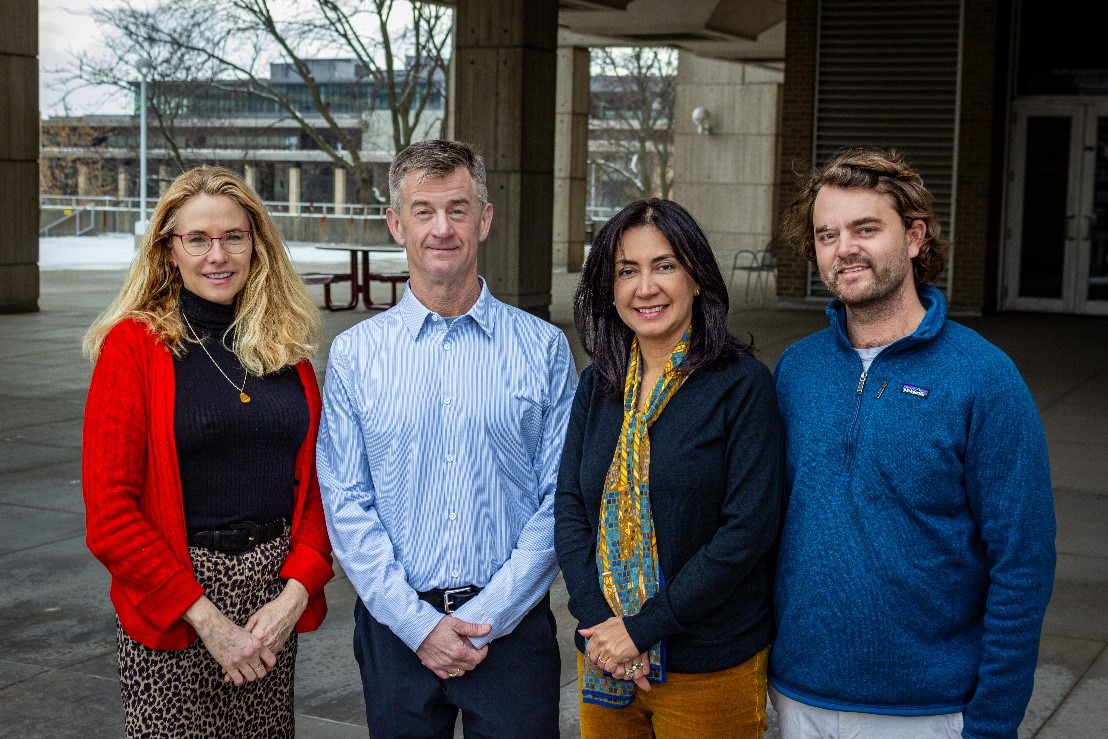 PFAS in municipal drinking water: New grant designed to improve risk communication in Wisconsin
A team from the University of Wisconsin-Madison received a grant from Illinois-Indiana Sea Grant to study PFAS messaging to water users in Wisconsin with a special focus on Latinos.
PFAS in municipal drinking water: New grant designed to improve risk communication in Wisconsin
A team from the University of Wisconsin-Madison received a grant from Illinois-Indiana Sea Grant to study PFAS messaging to water users in Wisconsin with a special focus on Latinos.
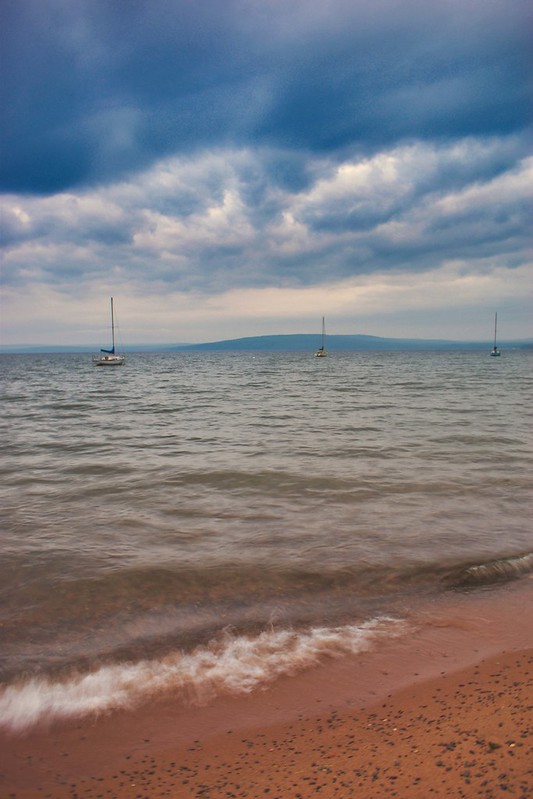 Sea Grant to fund $4.6 M in Great Lakes research, education and outreach
Sea Grant announces a $4.6 million investment in Great Lakes research, education and outreach over two years.
Sea Grant to fund $4.6 M in Great Lakes research, education and outreach
Sea Grant announces a $4.6 million investment in Great Lakes research, education and outreach over two years.
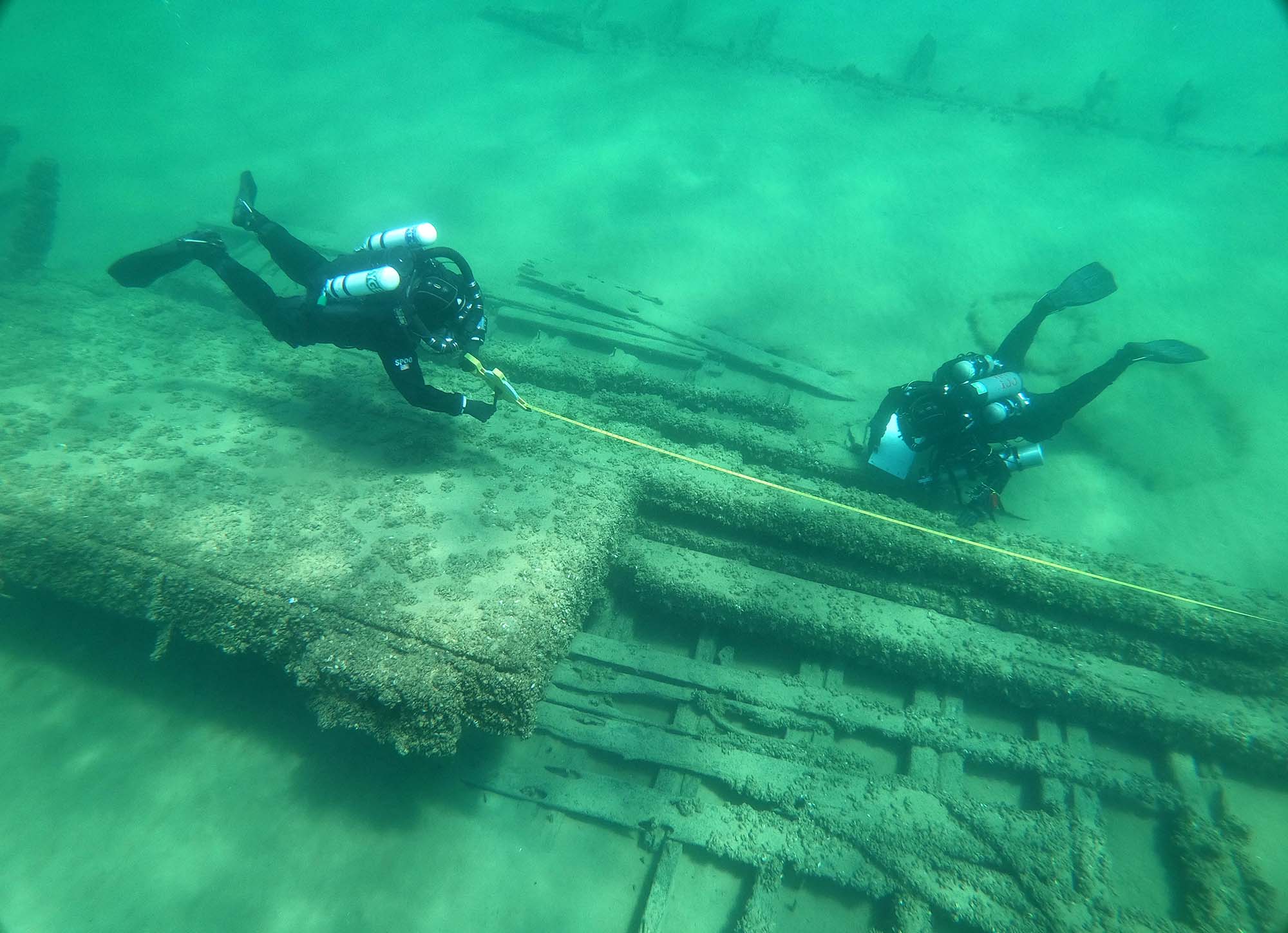 A deep dive into the double centerboard schooner shipwrecks of the Great Lakes
Maritime archaeologist Tamara Thomsen uncovers the story of double centerboard schooners in Lake Michigan.
A deep dive into the double centerboard schooner shipwrecks of the Great Lakes
Maritime archaeologist Tamara Thomsen uncovers the story of double centerboard schooners in Lake Michigan.
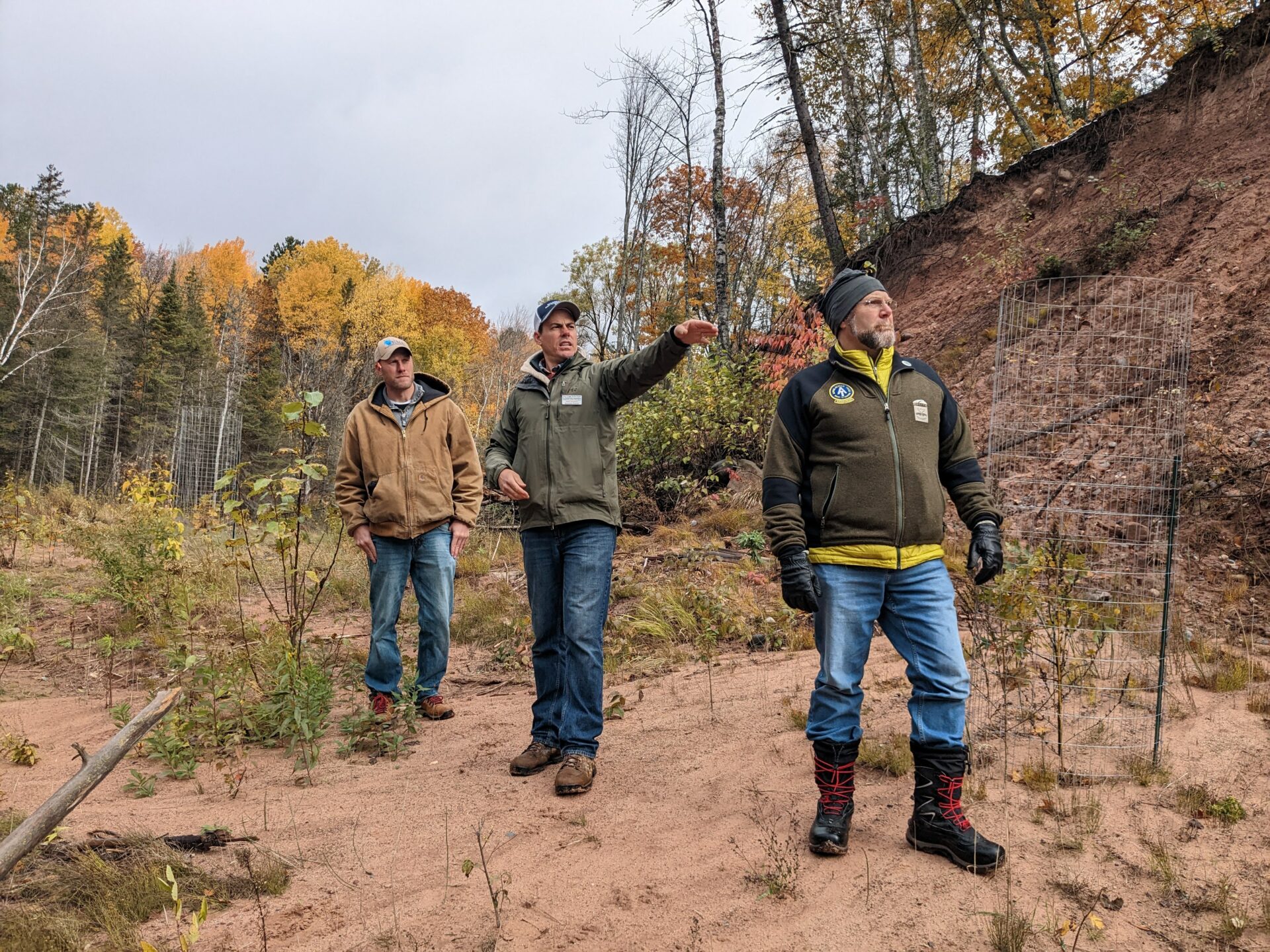 Northern Wisconsin communities benefit from climate change program
Hear what leaders in several northern Wisconsin counties and cities worked on for the 2023 Lake Superior Climate Champions Program.
Northern Wisconsin communities benefit from climate change program
Hear what leaders in several northern Wisconsin counties and cities worked on for the 2023 Lake Superior Climate Champions Program.
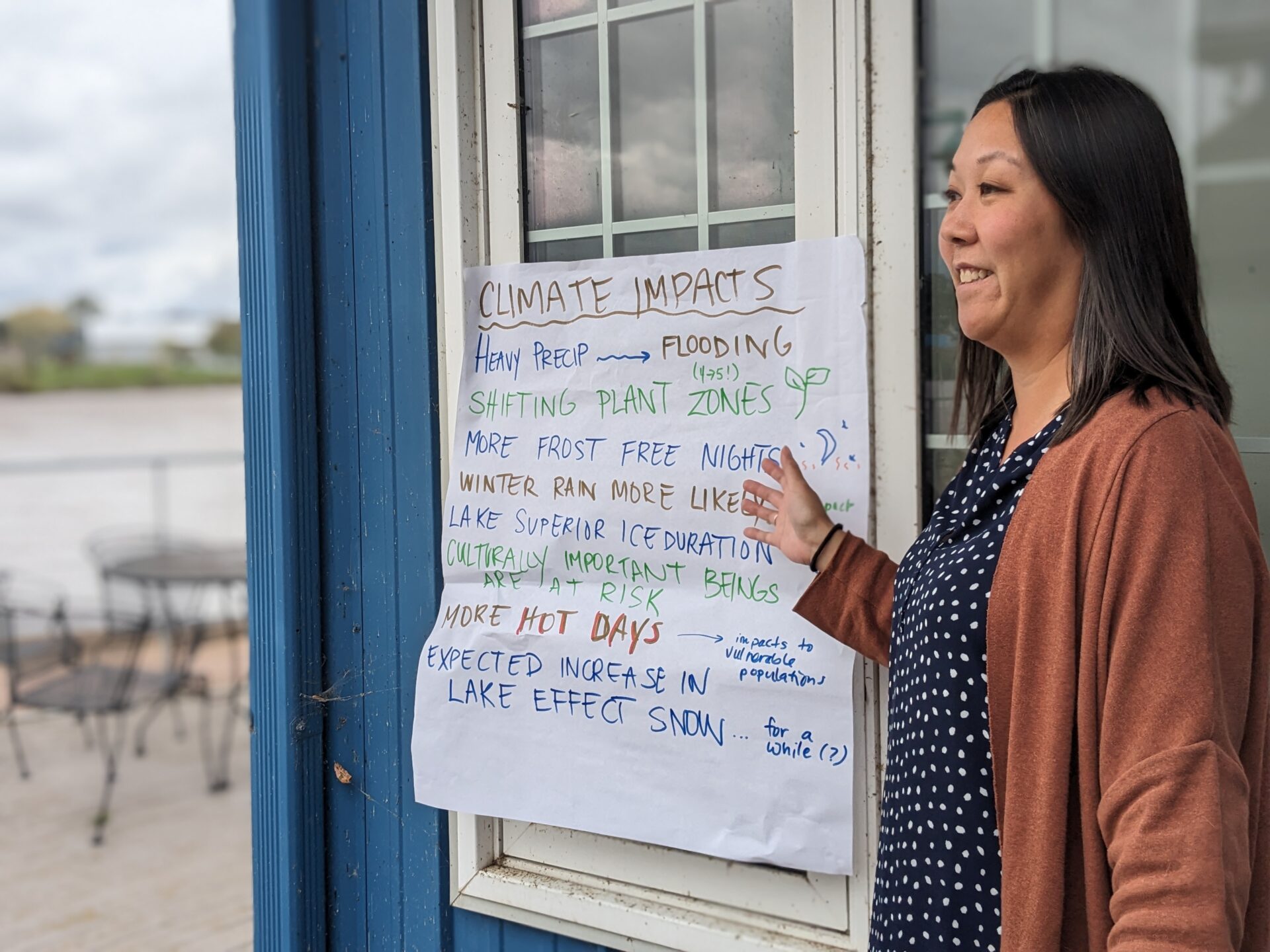 Applications open for community climate support program
A program for community leaders in northern Wisconsin who are looking for ways to address climate change is available through Wisconsin Sea Grant and the Lake Superior National Estuarine Research Reserve.
Applications open for community climate support program
A program for community leaders in northern Wisconsin who are looking for ways to address climate change is available through Wisconsin Sea Grant and the Lake Superior National Estuarine Research Reserve.
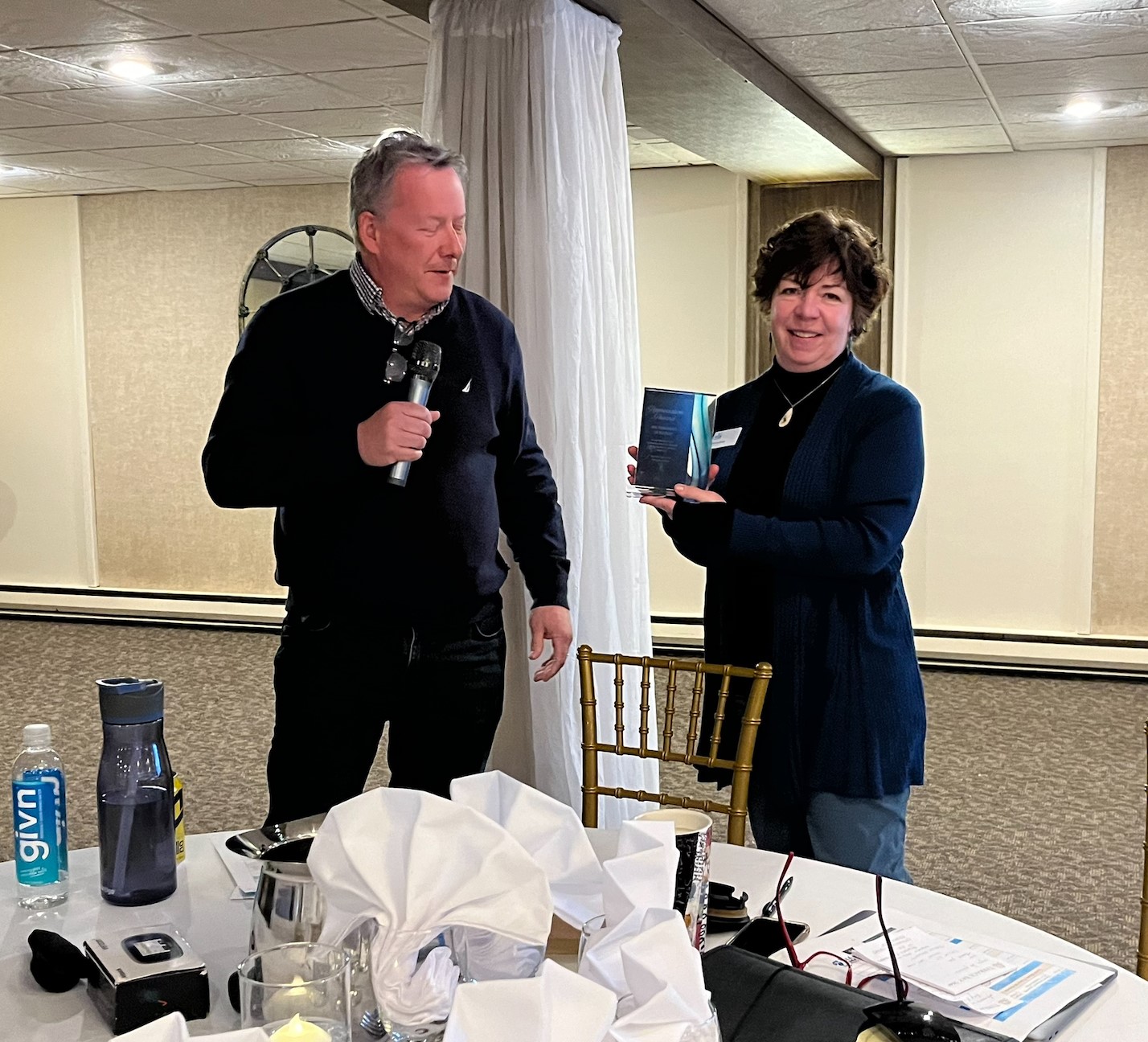 Moen honored by Wisconsin’s commercial fishers
The Wisconsin Commercial Fisherman’s Association honored Sharon Moen with an award last week.
Moen honored by Wisconsin’s commercial fishers
The Wisconsin Commercial Fisherman’s Association honored Sharon Moen with an award last week.
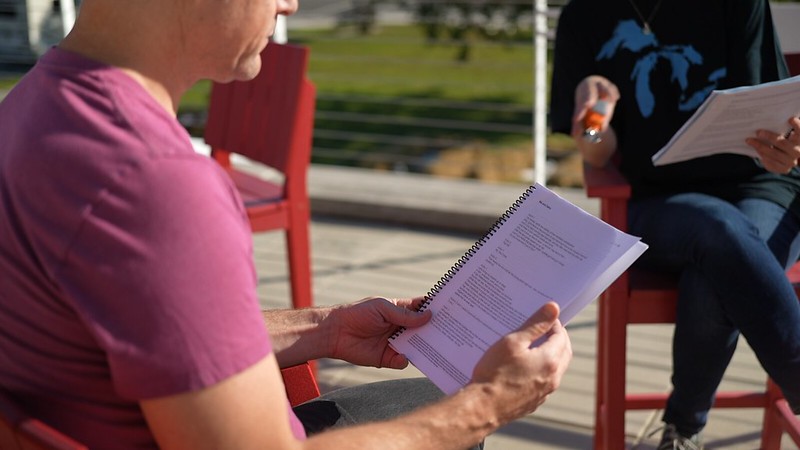 Marine debris play script available for free
What is marine debris, what are its impacts and what can we do about it? These are the central messages of a play written on behalf of Wisconsin Sea Grant that is now available for others to use for free, complete with props.
Marine debris play script available for free
What is marine debris, what are its impacts and what can we do about it? These are the central messages of a play written on behalf of Wisconsin Sea Grant that is now available for others to use for free, complete with props.
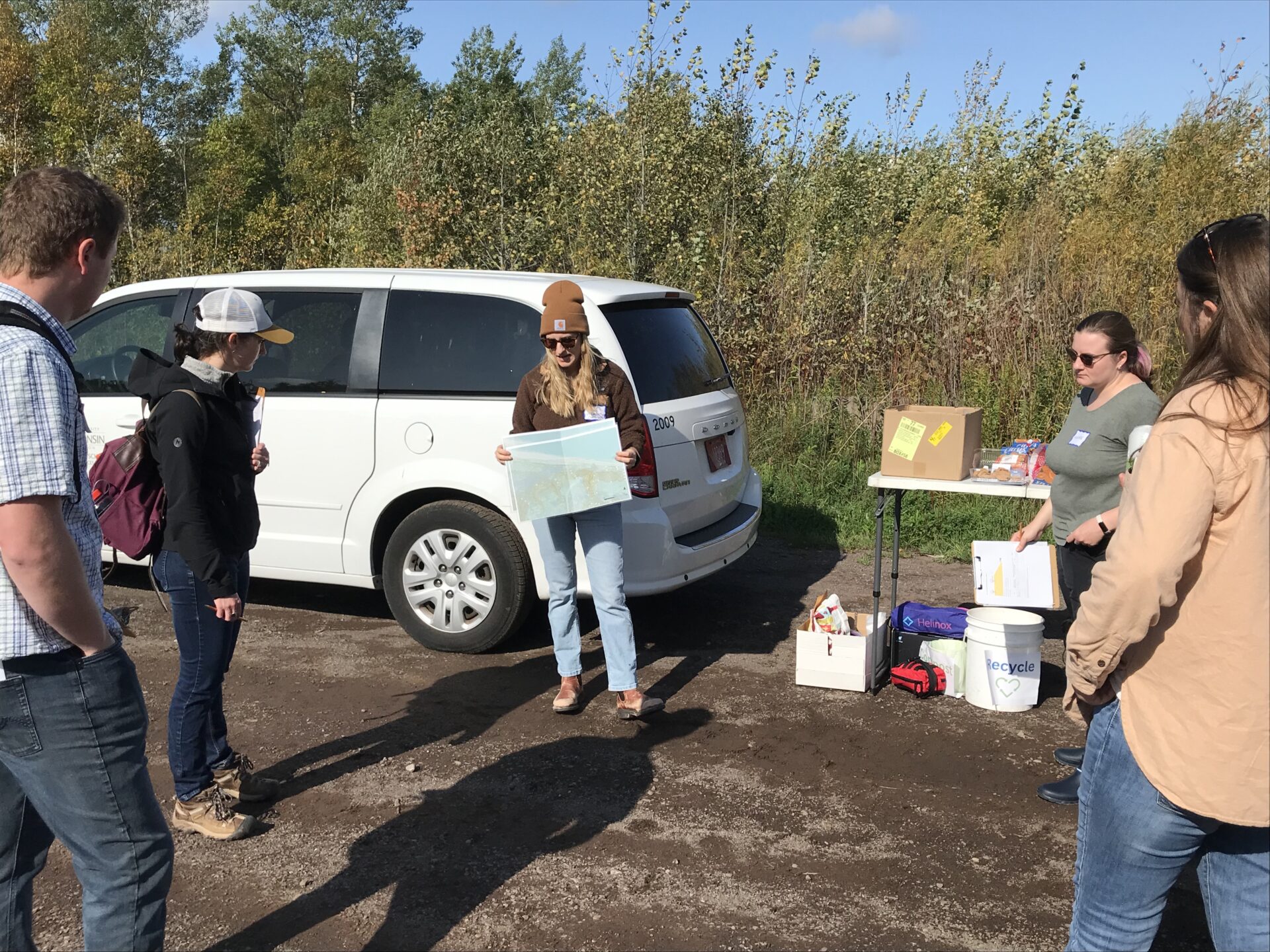 Keillor Fellow helps Great Lakes communities plan for coastal hazards
Keillor Fellow Helena Tiedmann is helping coastal communities build resilience to coastal hazards.
Keillor Fellow helps Great Lakes communities plan for coastal hazards
Keillor Fellow Helena Tiedmann is helping coastal communities build resilience to coastal hazards.
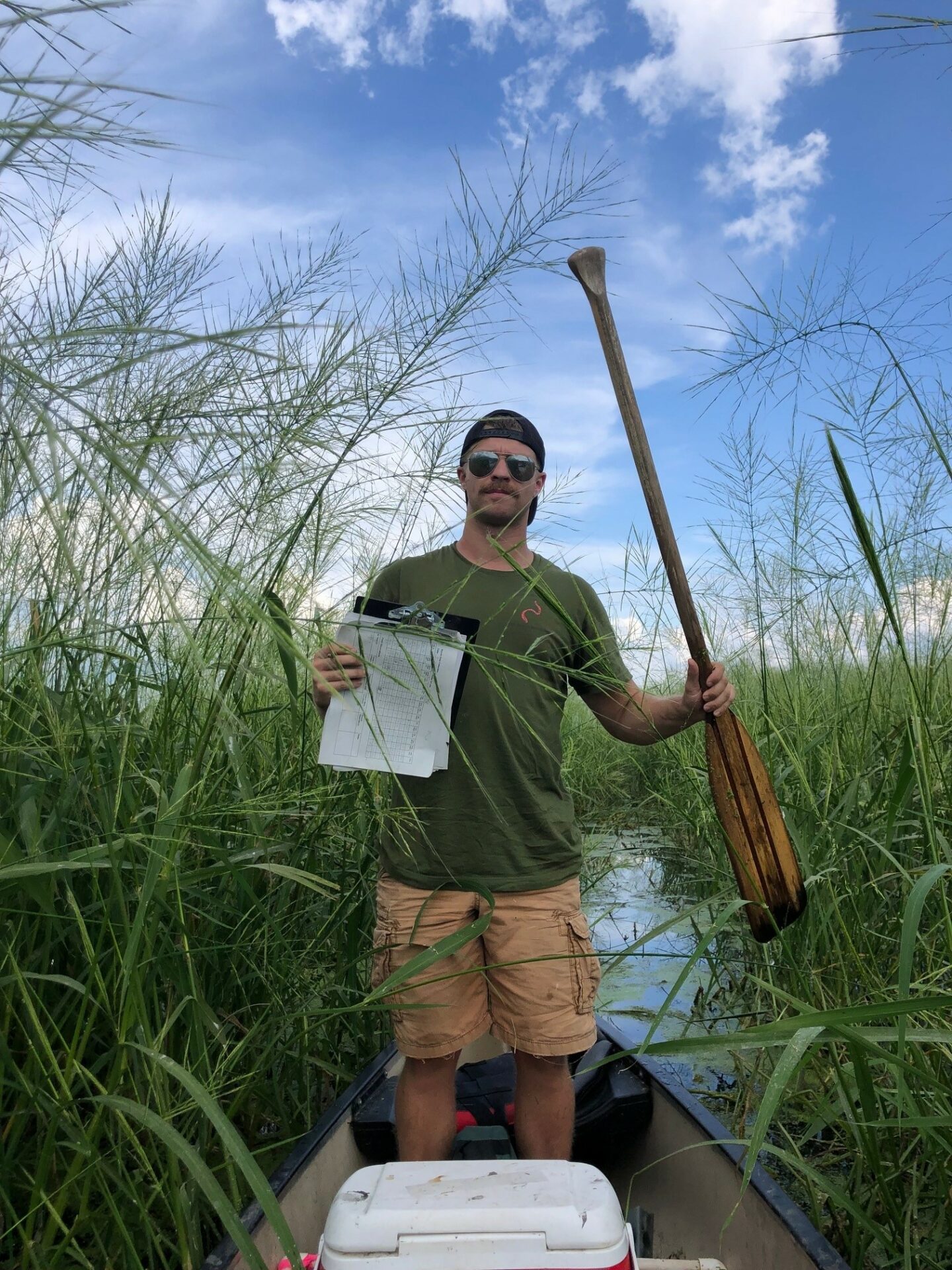 Keillor Fellow, reviewing resilience of coastal wetlands
A fellow is spending a year and a half rating the vulnerability of Lake Superior wetlands to climate change.
Keillor Fellow, reviewing resilience of coastal wetlands
A fellow is spending a year and a half rating the vulnerability of Lake Superior wetlands to climate change.
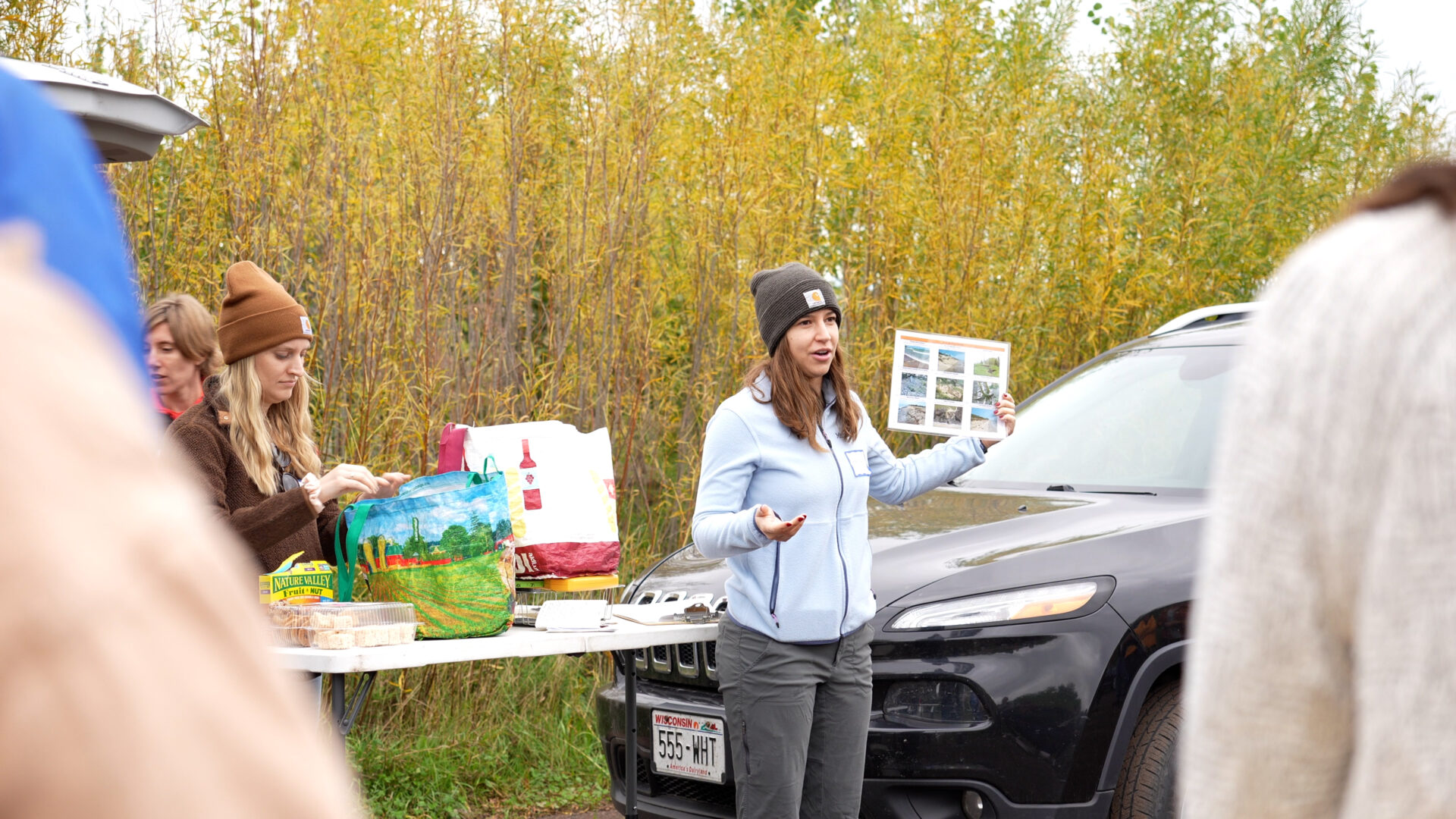 Convening CHAOS to spot signs of shoreline erosion
Debuting a new tool to spot signs of shoreline erosion on Lake Superior.
Convening CHAOS to spot signs of shoreline erosion
Debuting a new tool to spot signs of shoreline erosion on Lake Superior.
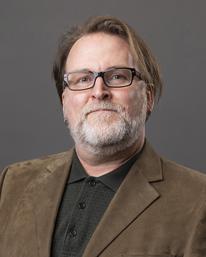 Making Sense of Algal Blooms
The next River Talk will be at 6:30 p.m. Wednesday, Nov. 8, with “Making Sense of Algal Blooms in the St. Louis River Estuary,” an in-person presentation by Euan Reavie with the Natural Resources Research Institute. His talk will be held at the Lake Superior Estuarium (3 Marina Dr., Superior, Wis.).
Making Sense of Algal Blooms
The next River Talk will be at 6:30 p.m. Wednesday, Nov. 8, with “Making Sense of Algal Blooms in the St. Louis River Estuary,” an in-person presentation by Euan Reavie with the Natural Resources Research Institute. His talk will be held at the Lake Superior Estuarium (3 Marina Dr., Superior, Wis.).
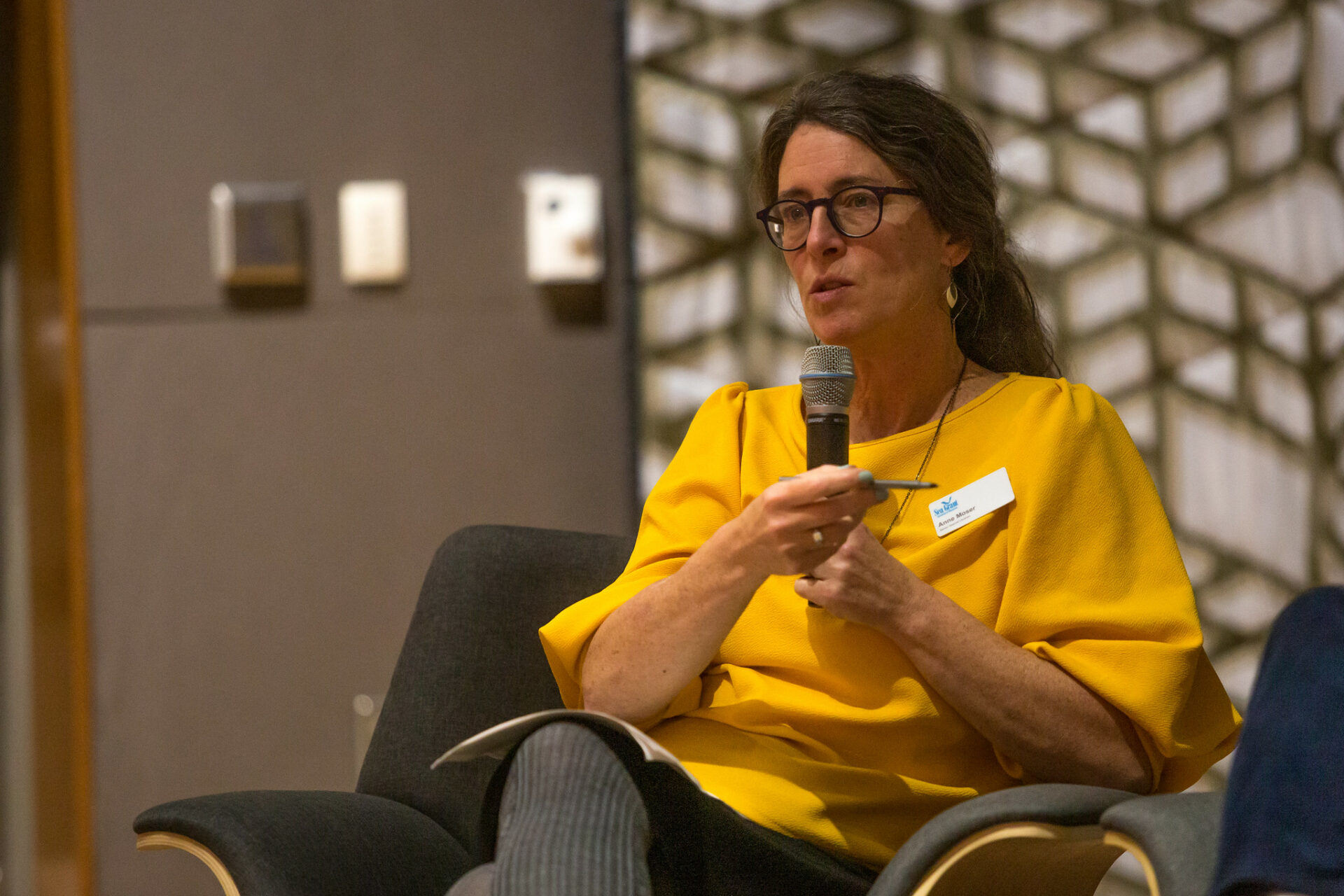 Water librarian releases torrent of information, programming and goodwill
Anne Moser wins Wisconsin Library Association President's Volunteer Award.
Water librarian releases torrent of information, programming and goodwill
Anne Moser wins Wisconsin Library Association President's Volunteer Award.
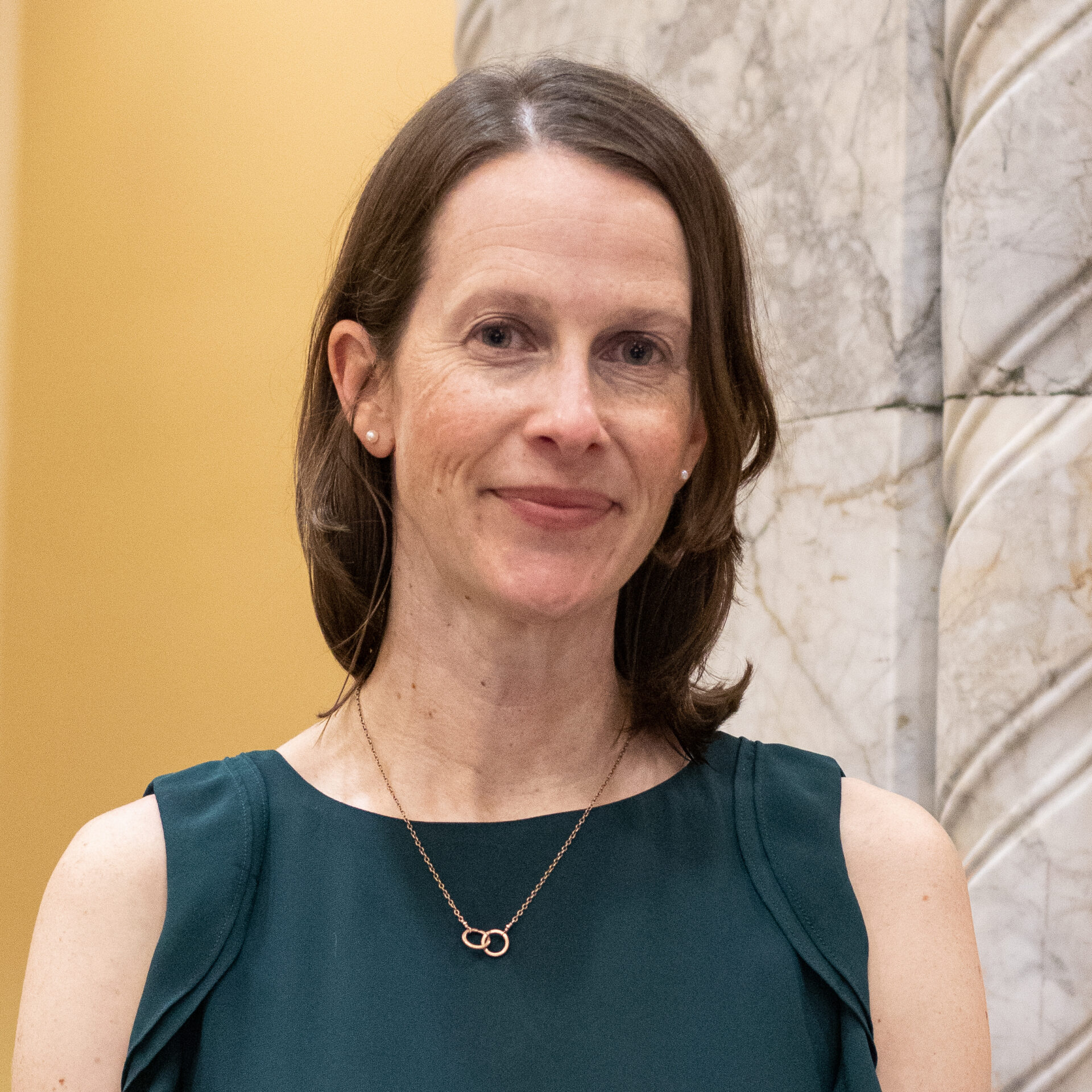 Remucal named interim director of Sea Grant
Prominent water contaminants researcher Christy Remucal takes over as Sea Grant director.
Remucal named interim director of Sea Grant
Prominent water contaminants researcher Christy Remucal takes over as Sea Grant director.
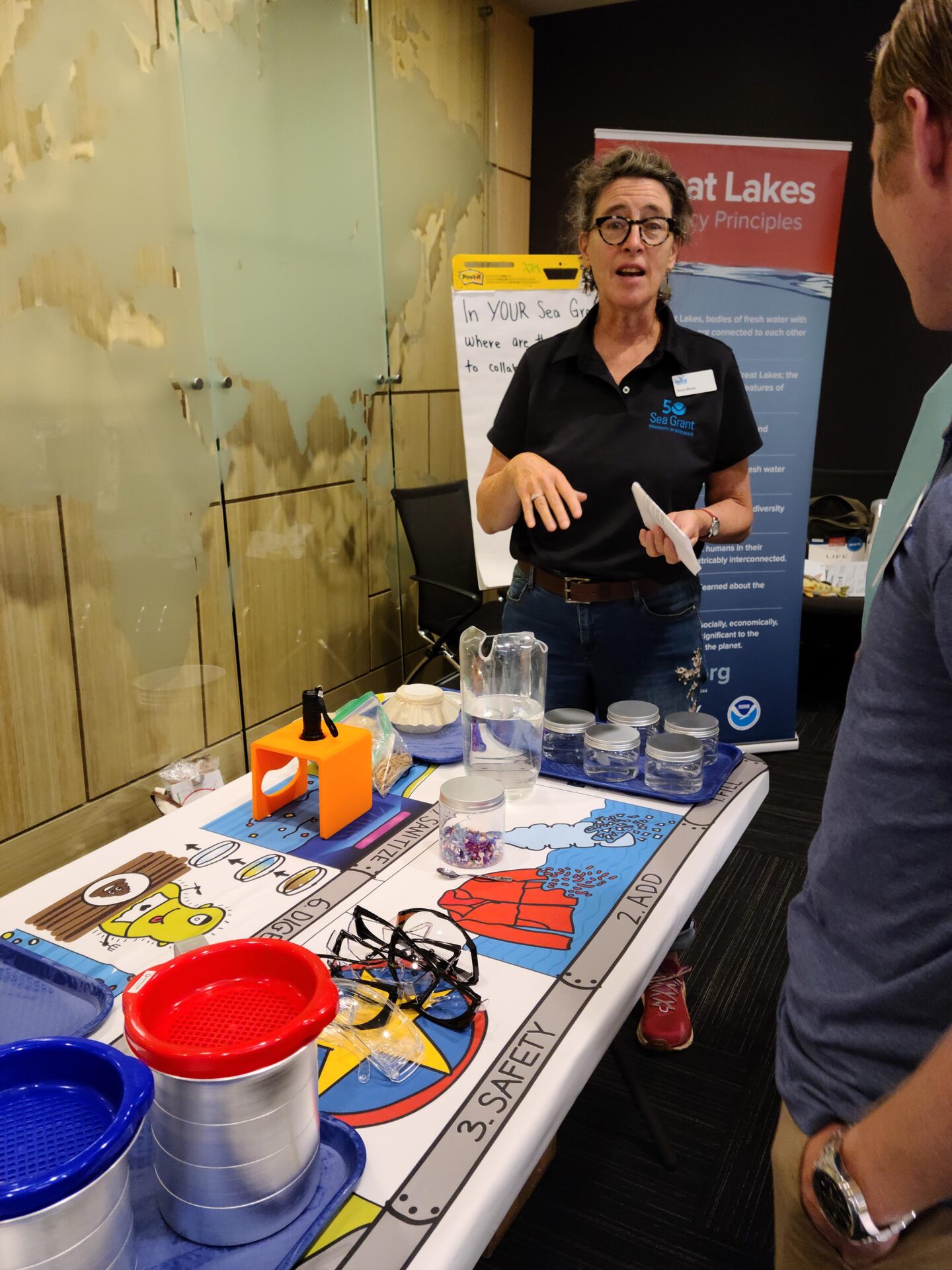 Plastics learning kit educates and enthralls
“Plastic Panic” is a grab-and-go teaching kit that formal and nonformal educators can use to teach about plastic pollution in the Great Lakes, specifically, microplastics.
Plastics learning kit educates and enthralls
“Plastic Panic” is a grab-and-go teaching kit that formal and nonformal educators can use to teach about plastic pollution in the Great Lakes, specifically, microplastics.
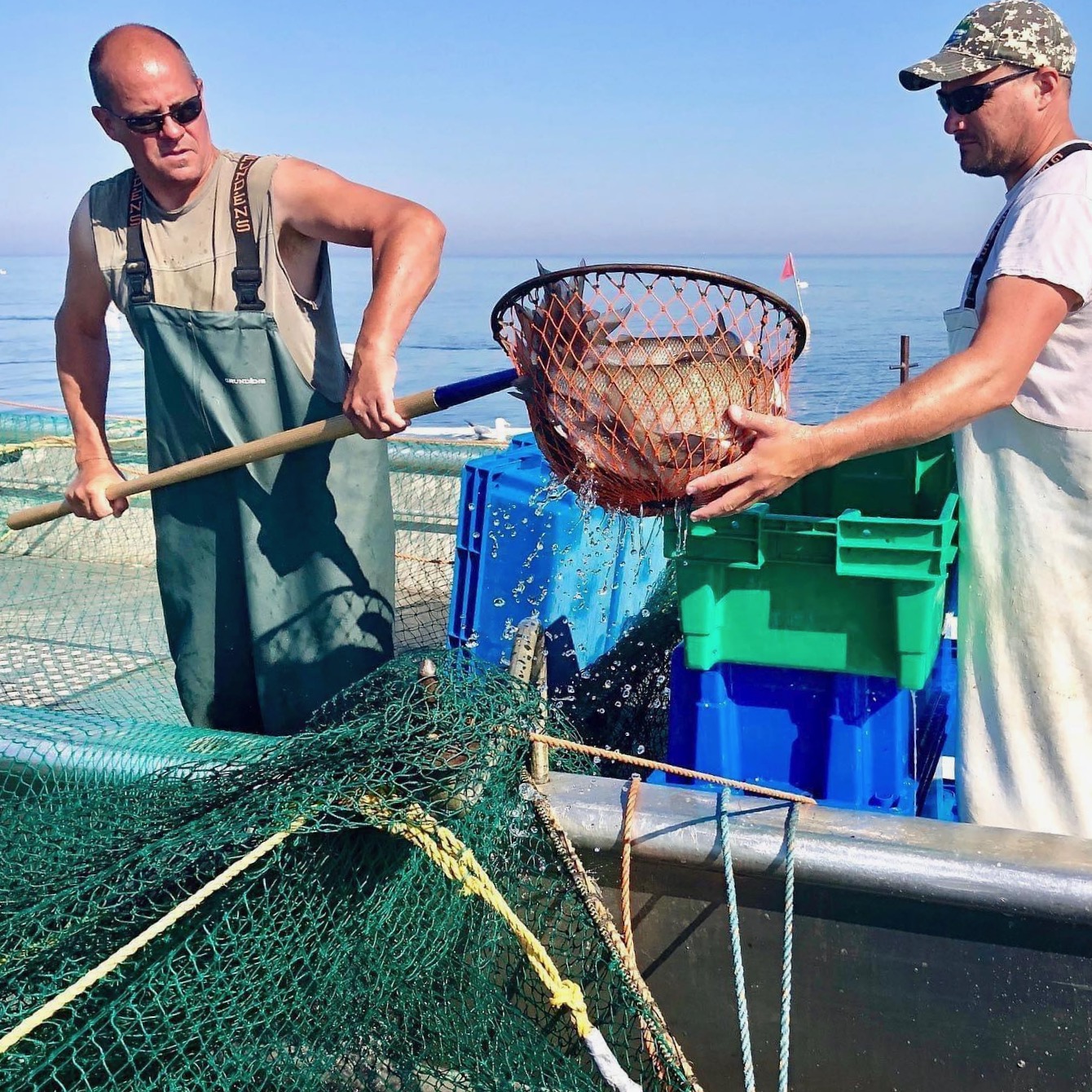 Sea Grant education on fishery expected to lead to $15 million in exports to Sweden
Sea Grant education leads to a $15 million market for Great Lakes commercial fisheries.
Sea Grant education on fishery expected to lead to $15 million in exports to Sweden
Sea Grant education leads to a $15 million market for Great Lakes commercial fisheries.



